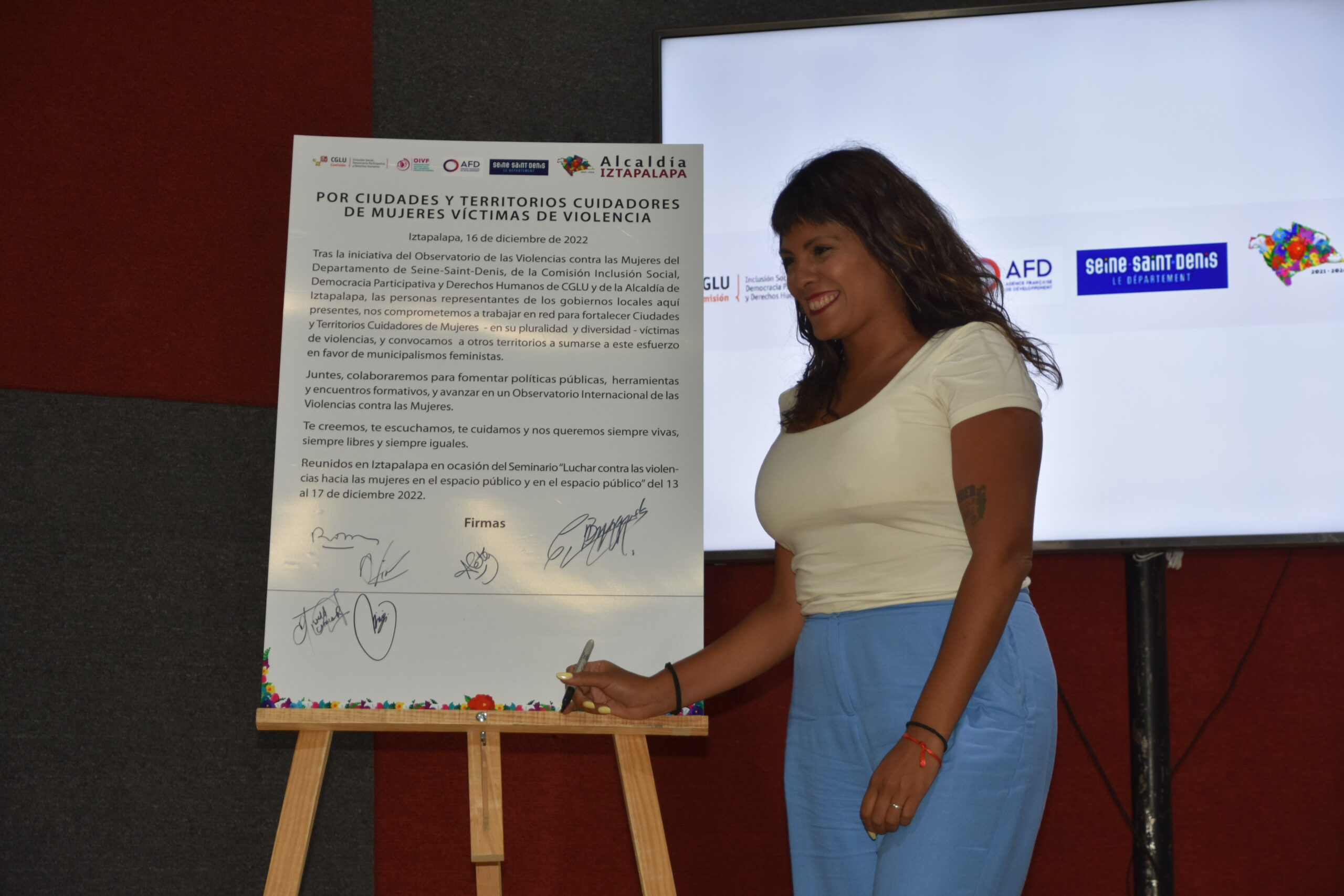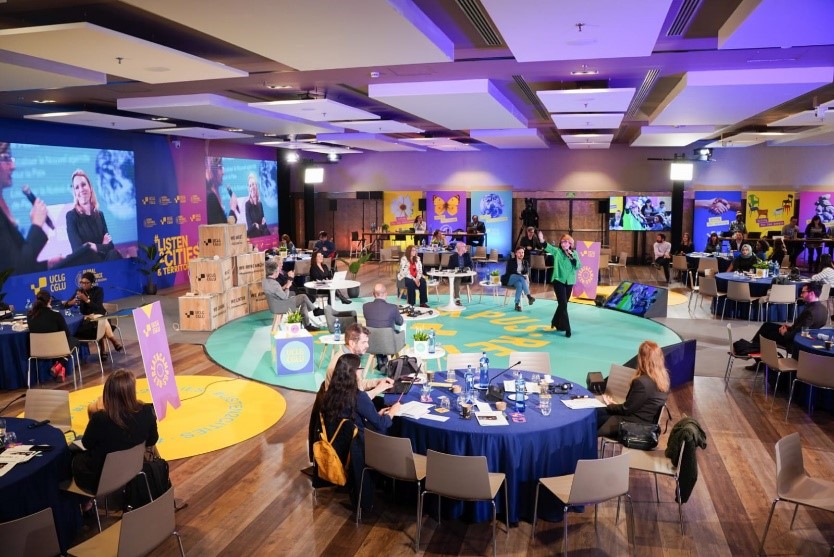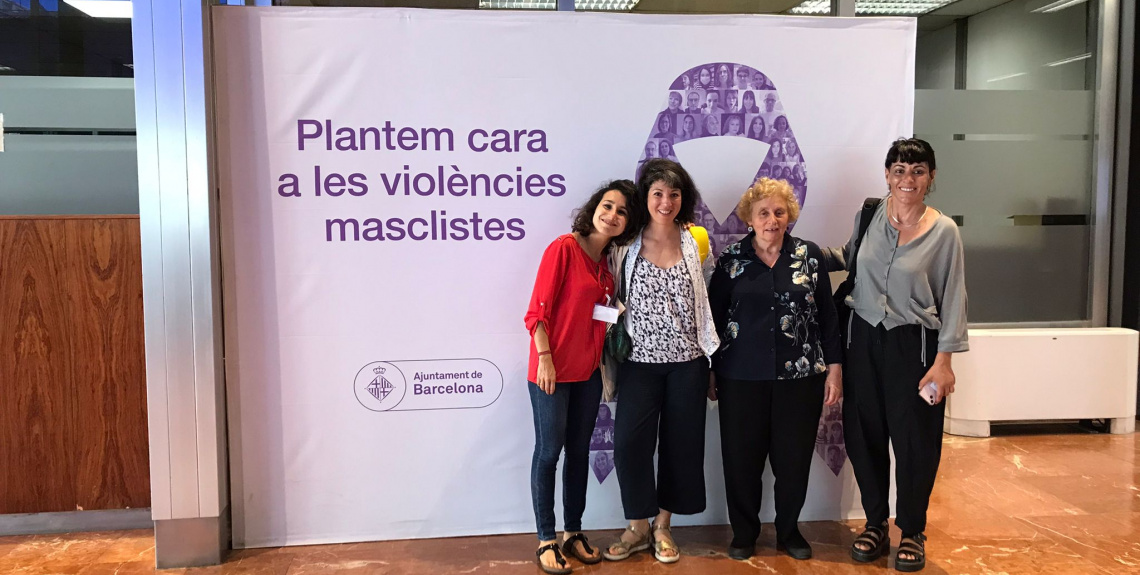The International Observatory on Violence against Women takes off in Latin America
Return on the seminar "Fighting violence against women in public and private spaces" organised by the International Observatory on Violence against Women, the UCLG Committee on Social Inclusion, Participatory Democracy and Human Rights, and the City of Iztapalapa.
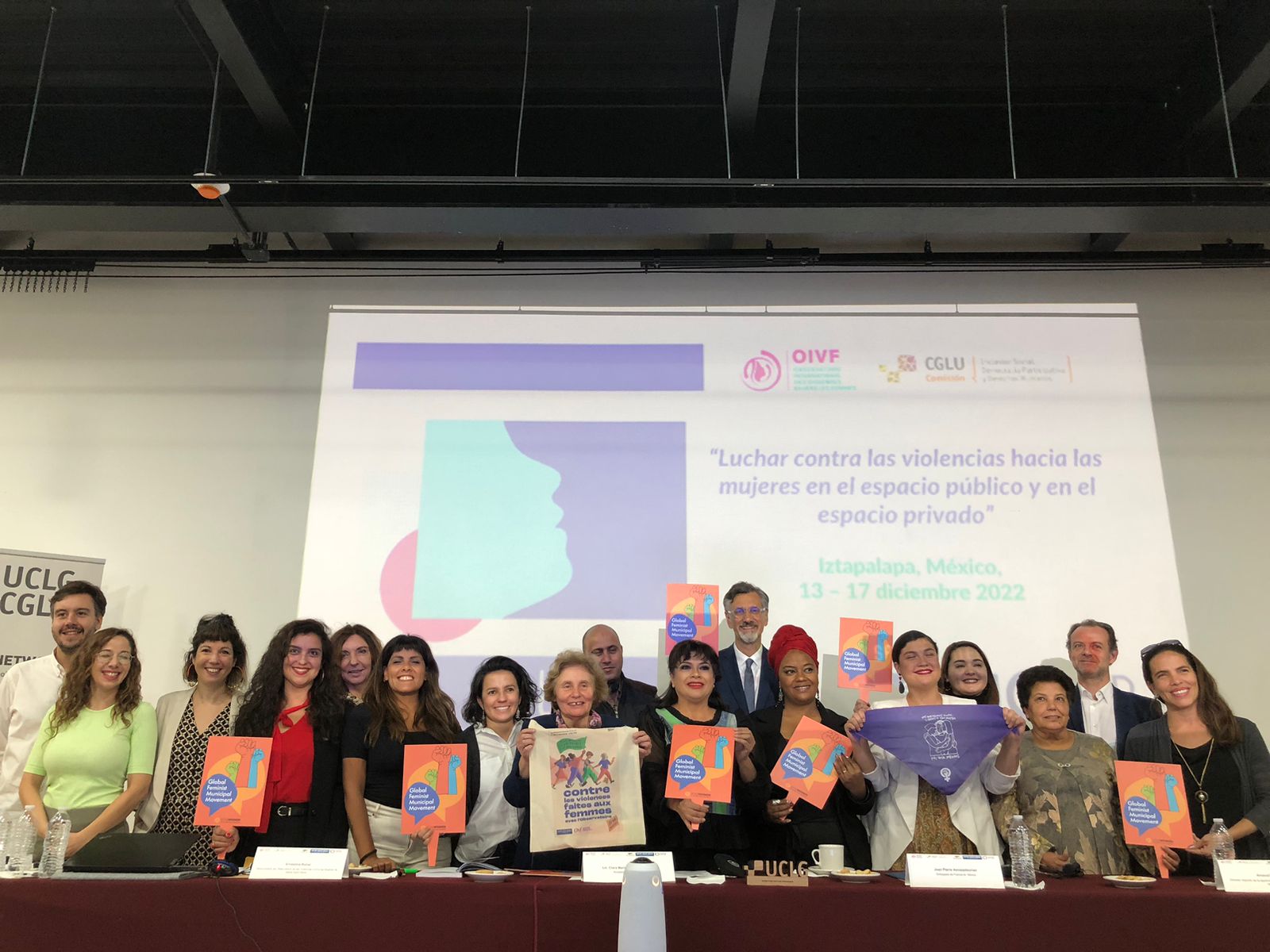


From the 13th to 16th of December 2022, the first regional seminar of the programme “Caring territories for women victimes of violence” was held in Iztapalapa, one of the 16 Municipalities of Mexico City. The event organised by the Department of Seine-Saint-Denis, its Observatory on Violence against Women, the UCLG Committee on Social Inclusion, Participatory Democracy and Human Rights and by the City of Iztapalapa brought together about twenty local authorities, civil society organisations and academics. The City of Jenin (Palestine), partner in the programme, was also present. This working week concluded with eight new Latin American local authorities joining the International Observatory on Violence against Women.
Iztapalapa opened the doors of its Utopias[1], multidisciplinary municipal centres, for four days of intensive work on local policies to tackle the various forms of violence against women. The meeting brought together elected officials, department directors, academics, activists, public officials and representatives of the justice system. The seminar was structured around four main themes: intimate-partner violence, femicide, violence in public spaces and assessments, data and local observatories. The Observatory of Seine-Saint-Denis shared its methodology and knowledge through the experience of innovative systems such as the taxi vouchers, “Un toit pour elle” (A home for her), the Grave Danger Telephone or the Feminicide protocol. During these 4 days, there were both practical and theoretical exchanges based on the experience of each of the communities present.
The opening ceremony on Tuesday 13 December was hosted by the Mayor of Iztapalapa, Claire Brugada, and attended by the French Ambassador to Mexico, Jean-Pierre Aszavadourian, the Deputy Director of AFD in Mexico, Arnaud Dauphin, and Ernestine Ronai, Head of the Observatory of Violence against Women in the Department of Seine-Saint-Denis.
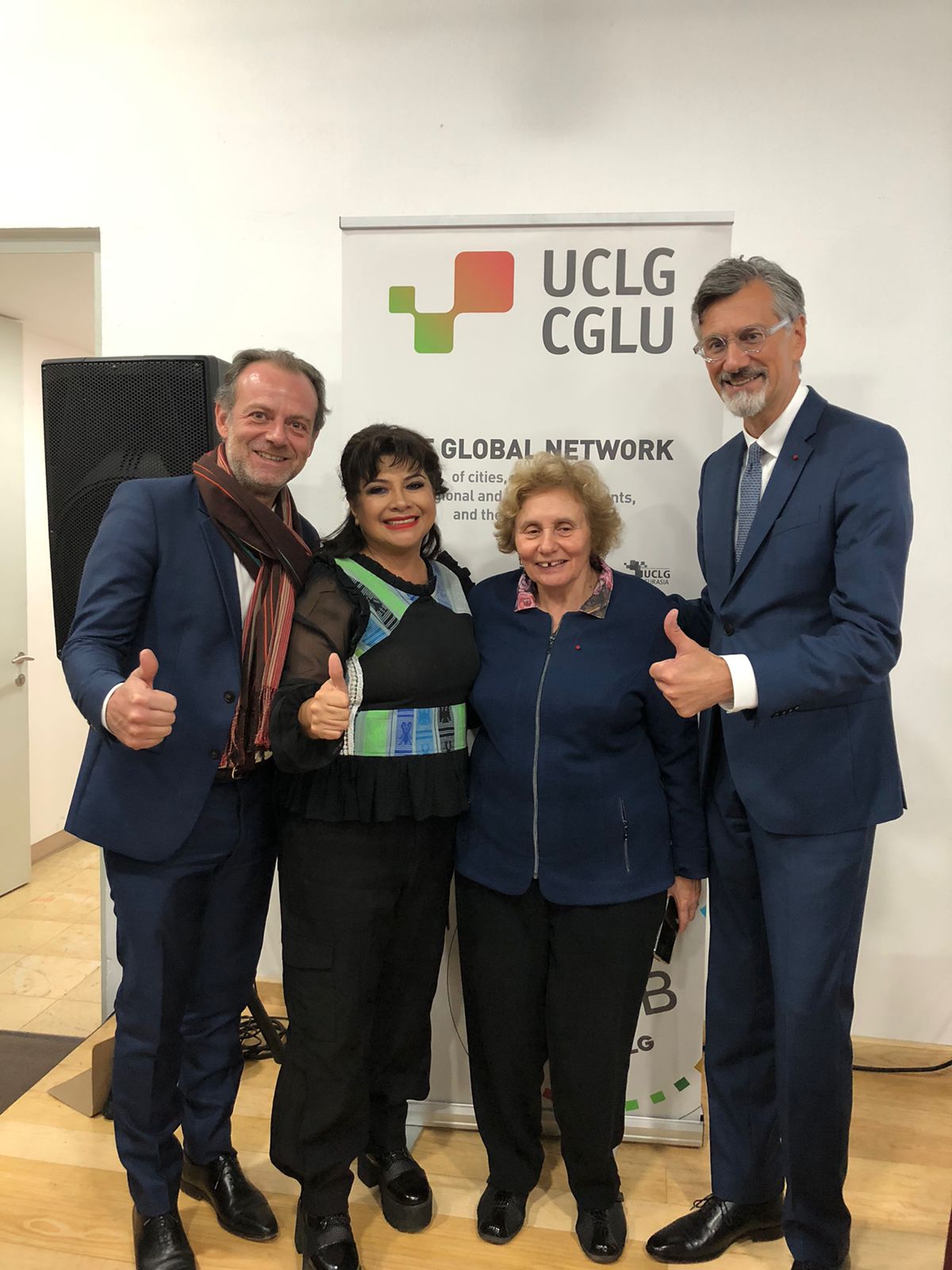

Official opening of the seminar “Fighting violence against women in public and private spaces”
Patriarchal violence in intimate relationships: naming the reality to build local responses
The Observatory of Seine-Saint-Denis (France) and the Department of Sociology of the University of Havana (Cuba) initiated the first working session by recalling the fundamentals of domestic violence and the need to integrate these elements into the elaboration of local policies and territorial projects. The strategy of aggressors and family terrorism are realities in which the victims are individually locked. Public policies focusing on the training of professionals on violence against women are essential to fight against this situation.
The cities of Quilmes (Argentina) and Villa Alemana (Chile) presented the establishment of resource centres designed by and for women. These places offer continuous information and support services and help coordinate multidisciplinary monitoring to limit the risk of re-victimisation. Vila Alemana created its Centro integral de la mujer[2] with an innovative methodology of participation of women, associations and professionals in the design of the place.
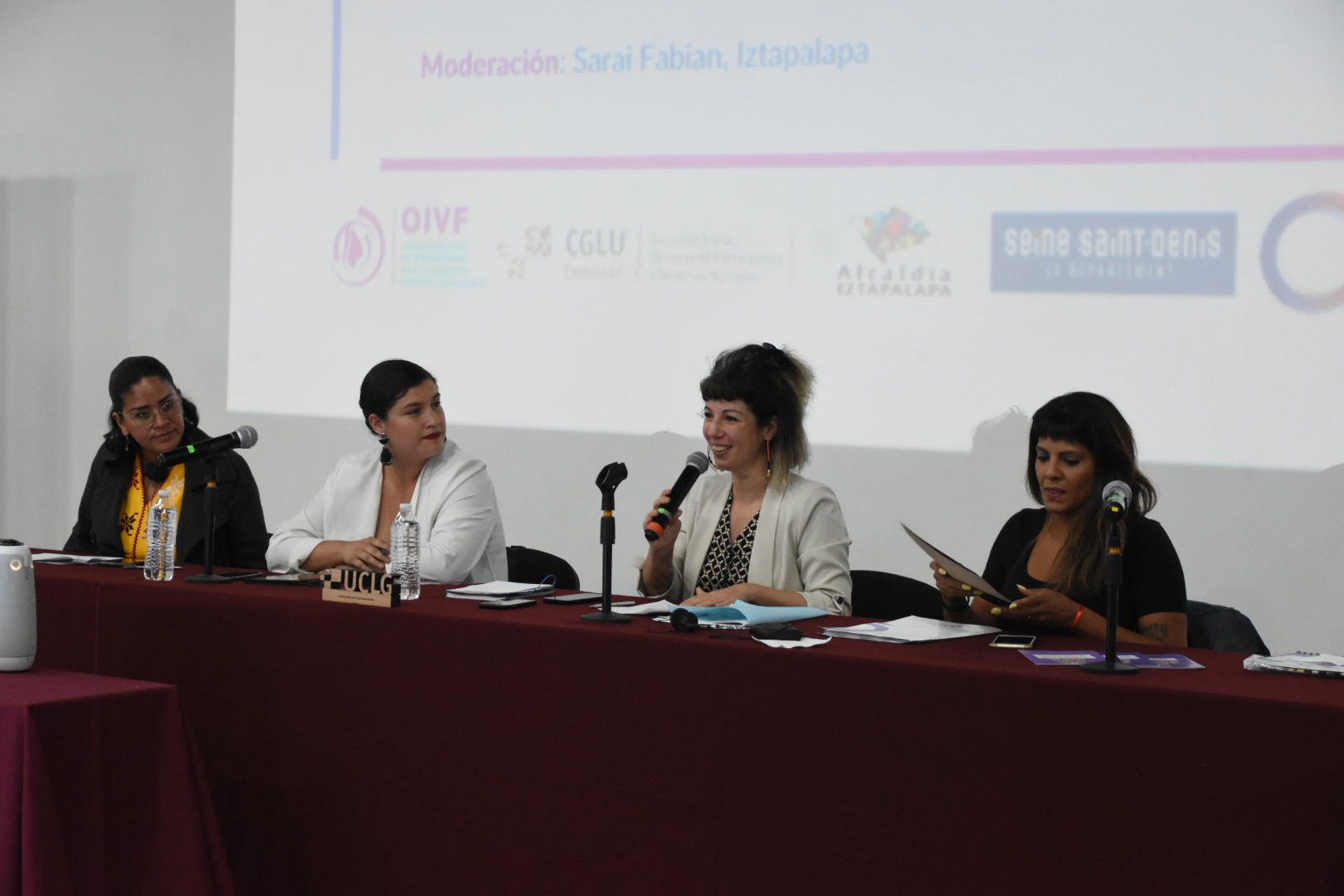

Panel discussion: Practical Approach – policies and strategis for a violence free-life in domestic
and intimate spaces
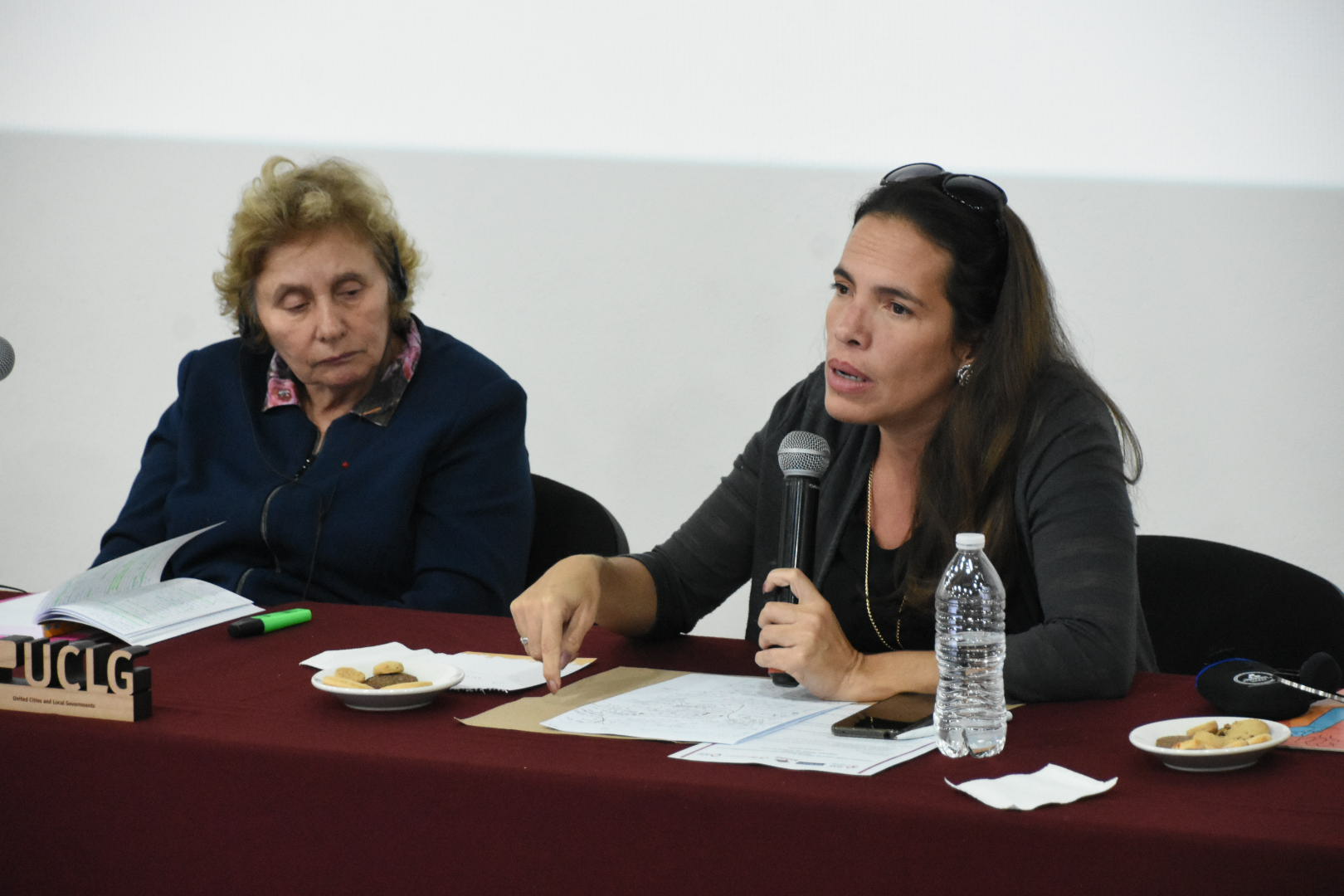

Panel discussion: Theoretical Approach – Patriarchal violence in intimate relationships:
naming the reality to build local responses
Public space: urban planning as a tool to prevent violence against women
In the public space, academics from the UAM of Iztapalapa, the UNAM and the CISCA Feminist Cities network demonstrated the impact of town planning on women’s feeling of insecurity when moving around the city and on their mobility strategies. Making the link with the continuum of violence, the panellists recalled that if domestic violence takes place in the private sphere, the fact that public space is not a safe place for women constitutes an additional obstacle for victims in their process of leaving violence. These material conditions also undermine the right to a violence-free life for all women. Women demand that urban planning incorporates a feminist perspective to build safe and inclusive cities.
Quito (Ecuador) presented campaigns to prevent sexual harassment in public transport with the “Cero acoso” campaign. The city is now questioning the hierarchy of needs that has guided urban mobility plans until now to put women pedestrians back at the heart of the schemes, improve access to public transport and reduce car use. Santiago de Chile has also carried out a feminist city experiment with support programmes for a “Caring System“[3], allowing these caregivers to become professional and other women to (re)find mobility, allowing them access to public space, with employment opportunities. Building cities “of care”[4] is an imperative that was regularly underlined by the seminar participants, recognising the economic, social and political value of women’s work.
Having resources to meet our demands: anchoring the fight against violence towards women locally
Nicoya (Costa Rica) promoted the campaign “Score a goal against machismo”[6] around soccer, a transparent and popular sport. However, Nicoya and the Dominican Federation of Municipalities recalled the precondition for the implementation of any local policy to prevent violence: the existence of sufficient legislative and material resources. The effect of protective laws against gender and sexual violence in politics is an imperative for women to be involved.
Cyber-harassment and misogynistic humiliation are daily realities for the women politicians present.
The allowance of sustainable and operational resources is another necessity. The specialised institutions have very few human resources. For example, the Dominican Republic has only one civil servant in the Judicial Commission on Gender for the whole country. All participants agreed that local governments should be required to train their staff on violence against women in order to ensure the quality of programmes. However, the instability of civil servants’ careers, due to the uncertainties of political life, remains an obstacle to the sustainable implementation of community policies in Latin America.
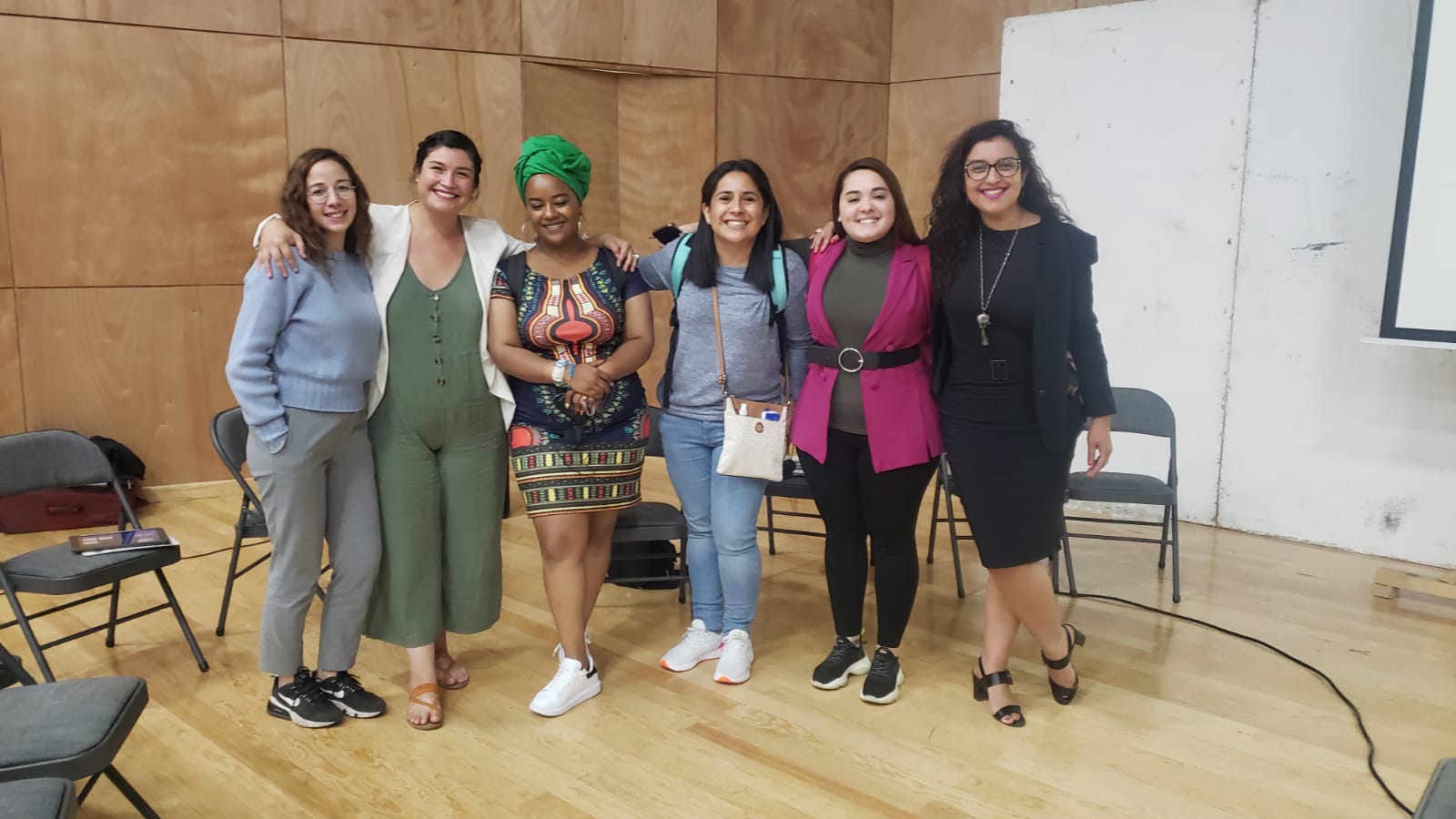

Day 2: Violence in public space
Feminicides, fighting the irreparable: public policies from social movements.
The day dedicated to the fight against feminicide was held with the participation of activists and civil society organisations. The Red de mujeres de Ciudad Juarez association, the National Coordination of Indigenous Women, the Truth Commission, and Karen Martinely, an activist and mother of Renata, a 13-year-old victim of feminicide, presented the painful struggle of the families of victims and survivors to access justice. They tell in unison how activism is necessary to overcome the unbearable institutional failures and unspeakable pain. The Truth Commission recalled that in addition to the dramatic number of feminicides, there are also missing women and girls, for whom investigations must follow methods that integrate the specificities of gender-based violence.
Bogotá (Colombia) presented the functioning of the “Articulated System of Early Alerts for the Prevention of Feminicide” (SAAT), which enables municipal services to identify victims at high risk of feminicide with the expertise of the legal medicine service. Specialised and inter-institutional support is then offered to them. The Specialized Prosecutor’s Office for Gender Violence Crimes (Mexico City Court) explained how the justice system, and more generally all public services dealing with domestic violence, must adapt their methods in order to correctly deal with the complexity of situations (control and manipulation, analysis of material evidence, impact of psycho-trauma, economic dependence, etc.).
Protecting girls from patriarchal violence from childhood to adulthood
Karen Martinely’s powerful testimony highlighted how patriarchy exposes women’s bodies to violence from an early age. The protection of girls and young women is a local policy issue that is intrinsically linked to the fight against violence towards women. Throughout the week, the participants pointed out the urgent need to build programmes to protect girls from the very first sexual violence and to prevent their consequences, such as pregnancies resulting from these rapes.
The Observatory of Seine-Saint-Denis emphasised the importance of taking charge of children who are co-victims of domestic violence and orphans of murdered and/or missing mothers with child psychiatric support to deal with the trauma they have suffered. This is the purpose of its feminicide protocol. UNODC has shared its statistical tool defining a set of criteria for objectifying feminicide. The aim is to make visible the murders perpetrated because of the female sex and to help improve policies to prevent feminicide, even in countries where the offence is not criminalised as such. This analytical framework, which was widely welcomed by the participants, covers a large spectrum of gender-based killings, including feminicides against girls and adolescents committed in the context of sexual assault, early and forced marriages, female genital mutilation, etc.
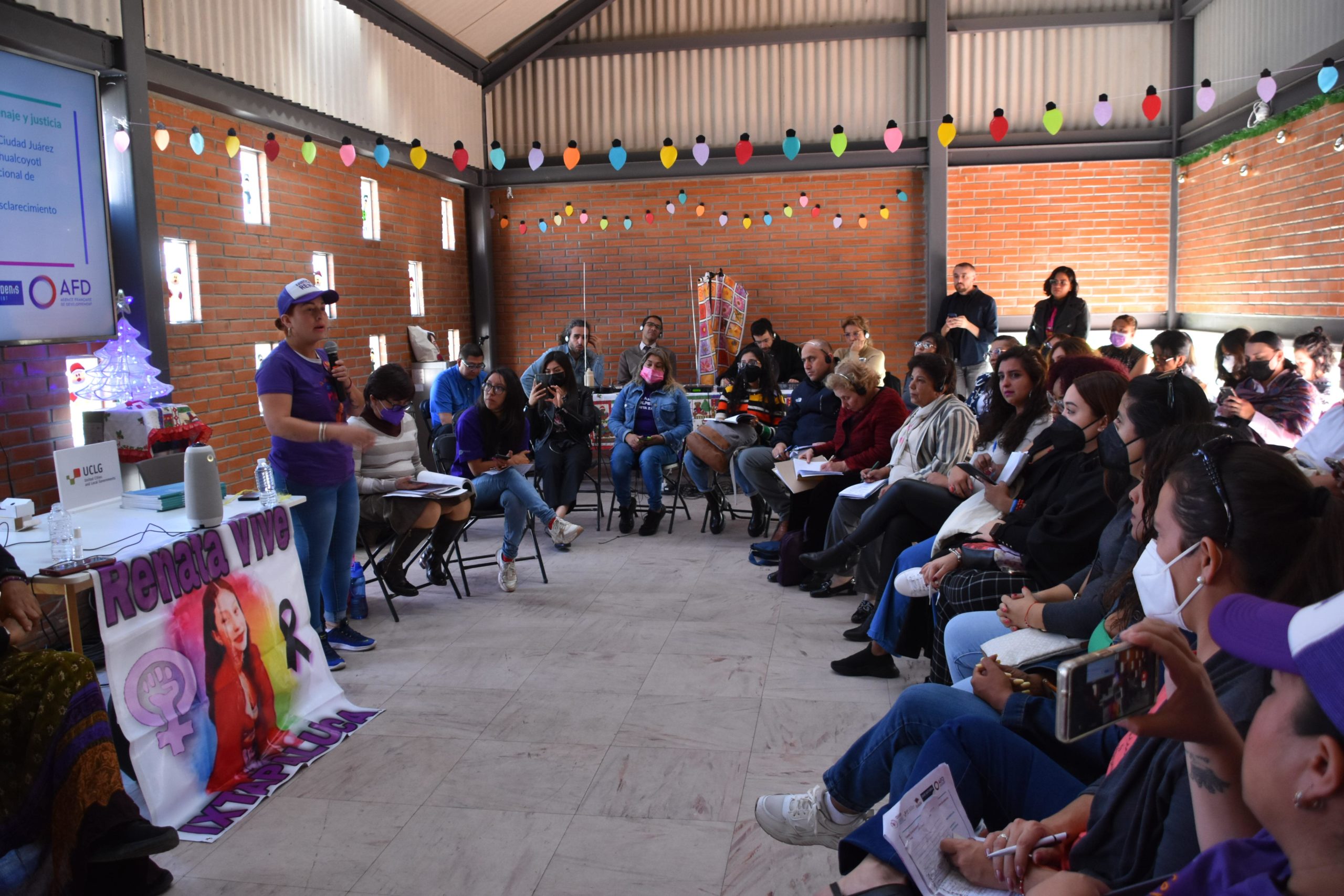

Panel discussion: Femicides in Mexico: justice and hommage
Local diagnosis: revealing the extent of violence
The last day focused on the importance of partnership work and data collection with the observation of the functioning of the Security Cabinet of Iztapalapa. This is a coordination mechanism between the government of Mexico City and the Mayor’s Office of Iztapalapa to address violence. The monitoring allows for the analysis of crime figures at local level and a focus on violence against women. Based on these elements, the municipal services have established a precise diagnosis of rapes reported since 2018: 91% of the victims are women, 46% of them minors. The majority of reported incidents took place during the year (over 65%) and were committed with aggravating circumstances (68% in 2022). It is worth noting that in 2022, Iztapalapa observed a sharp increase in the number of reports. On this occasion, Clara Brugada, the mayor, recalled that this is not an increase in sexual crime, but rather a better support for victims by the public services in the disclosure of violence. This is a positive sign of the work carried out by the Security Cabinet and by all the partners who support women victims of violence.
Exchanges continued with the UNAM, which presented the historic work of the Hull House of Chicago, with the first socio-economic maps, made by and for women. The city of Jenin (Palestine) launched its Observatory in 2021 and presented the results of its first diagnosis. In addition to gathering accurate gender-specific data, the Jenin Observatory also analysed the complexity of Palestinian laws based on Egyptian and Jordanian texts. Many constraints limit the victim’s departure from home (authorisation from the husband to obtain a passport, to travel, etc.). The Israeli occupation creates additional risks for escaping a violent spouse. These elements served as the basis for the analysis and the construction of a three-year action plan. The Observatory of Seine-Saint-Denis concluded by outlining the major challenges of a shared diagnosis: revealing violence in a territory and understanding it better, sharing a common culture on understanding these situations between partners who collaborate on the diagnosis, evaluating and improving public policies.
From theory to practice: visits to feminist territories
Iztapalapa, the host city of the event, generously shared its knowledge. The conference sessions were complemented by site visits to the heart of the prevention and protection mechanisms put in place by the Mayor. The international delegation met with the “community animators“[6] who inform residents about violence by going door to door on a daily basis, using tools such as the violentometer and the violence wheel. Then, they direct women victims to the “Casas de las Siemprevivas“[7], which have multidisciplinary services and are located in each of the ten Utopias. The participants visited the “Caminos de mujeres libres y seguras[8]“, renovated public spaces with over 2,900 murals[9] for the mobility of all and the right to live in the city. At the same time, the “Safe Business for Women[10]” initiative makes visible on the shop fronts of businesses willing to listen to and guide women victims of violence who take refuge in their homes. Finally, the mobile prevention teams against gender-based harassment in transport raise awareness among travellers in stations and on buses. One of the other field visits was to the “Centro de Justicia para mujeres[11]“, a unique care centre bringing together police, justice and health professionals, a civil courtroom for urgent protection measures and emergency accommodation for victims.
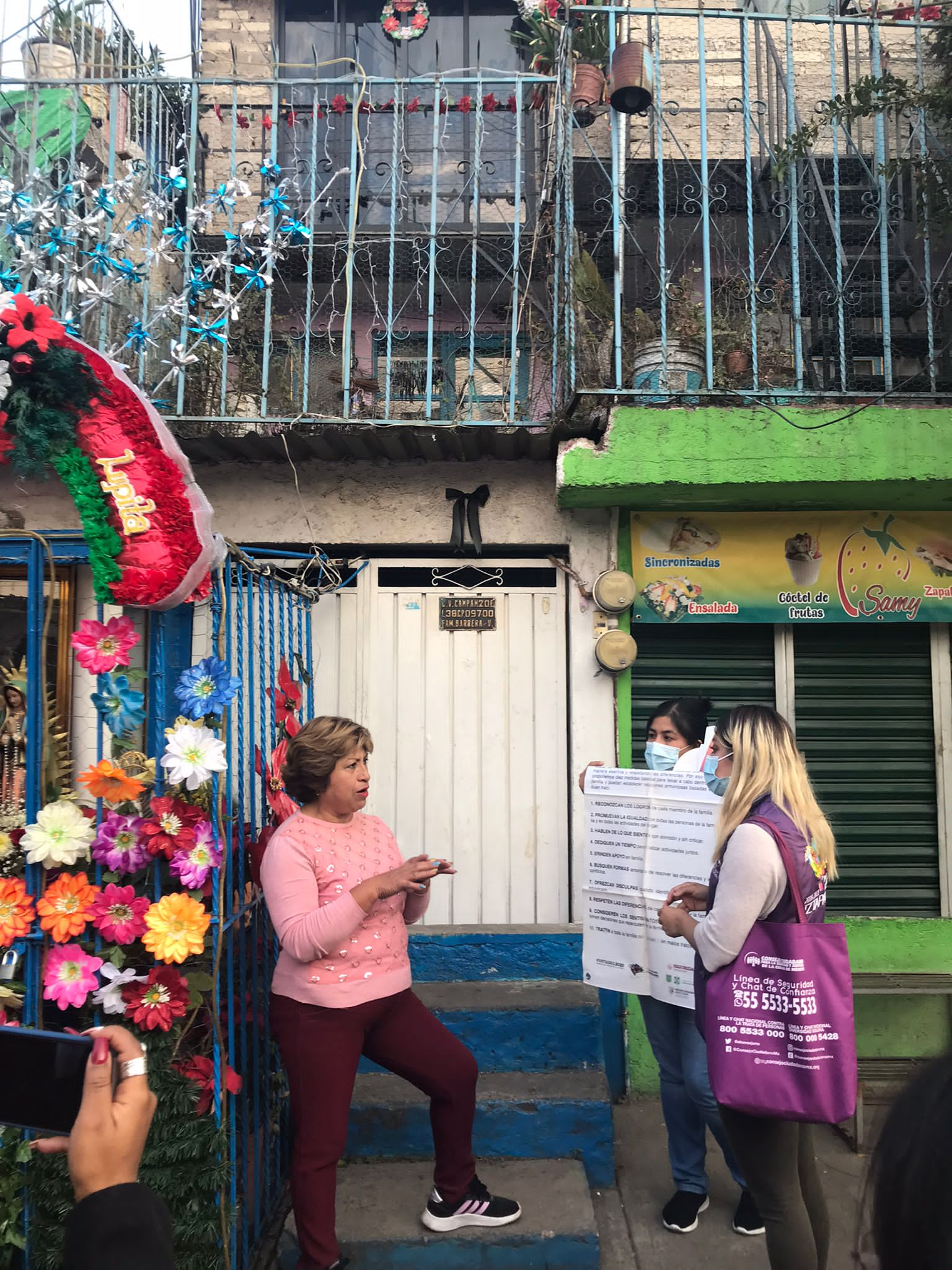

Community facilitators
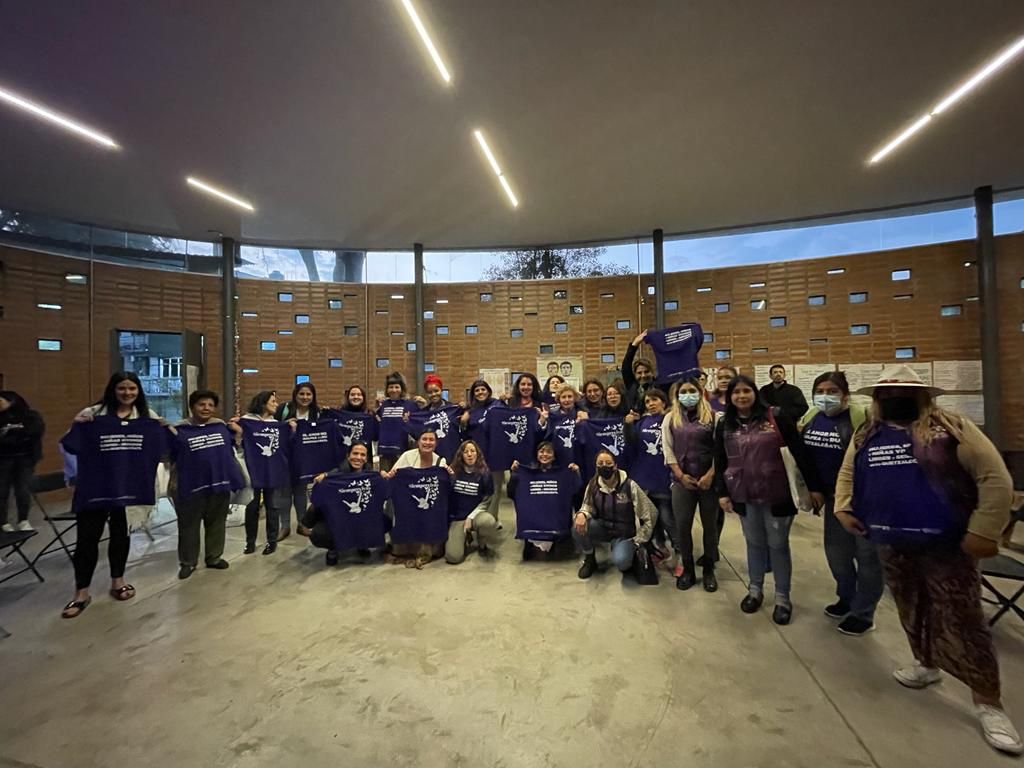

Visit of the site : Casa de las Siemprevivas
The week concluded with the adoption of a Declaration of commitment to the International Observatory on Violence against Women. Alongside the Observatory, the cities of Bogota (Colombia), Ciudad Juárez (Mexico), Nicoya (Costa Rica), Quilmes (Argentina), Quito (Ecuador), Santiago and Villa Alemana (Chile), as well as the Dominican Federation of Municipalities, also joined the network.
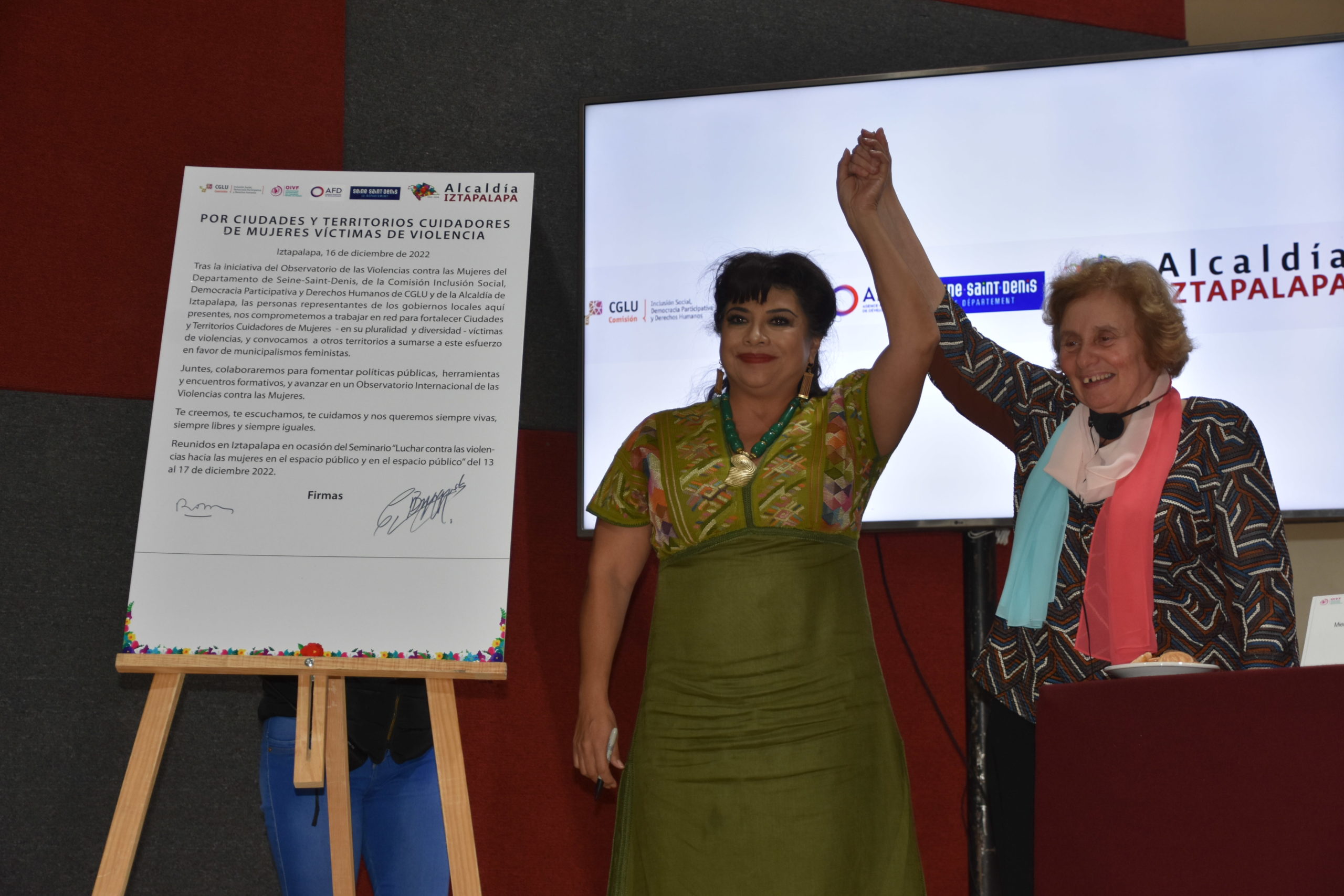

Signature of the collective Declaration of commitment


Useful documents and links
[1]Unidades de Transformación y Organización Para la Inclusión y la Armonía Social. [2]Integral Women's Centre [3]Carers [4]Cuidades del cuidado means, in Spanish, the care of people, domestic tasks, benevolence and the fact of "looking after others". [5]Putting a stop to machismo, prevention campaign against sexism [6]Orientadoras comunitarias [7]The houses of the ever-living, a place where women who are victims of violence are welcomed, listened to and supported [8]The safe paths [9]Large frescoes on the walls of buildings [10]My safe trade [11]Women's Justice Centre
Observatory on Violence against Women of Seine Saint Denis (Seine-Saint-Denis)
CGLU (Barcelone)
Palestine
Comores




As part of the program “Territories protecting women victims of violence,” the Observatoire international des violences...
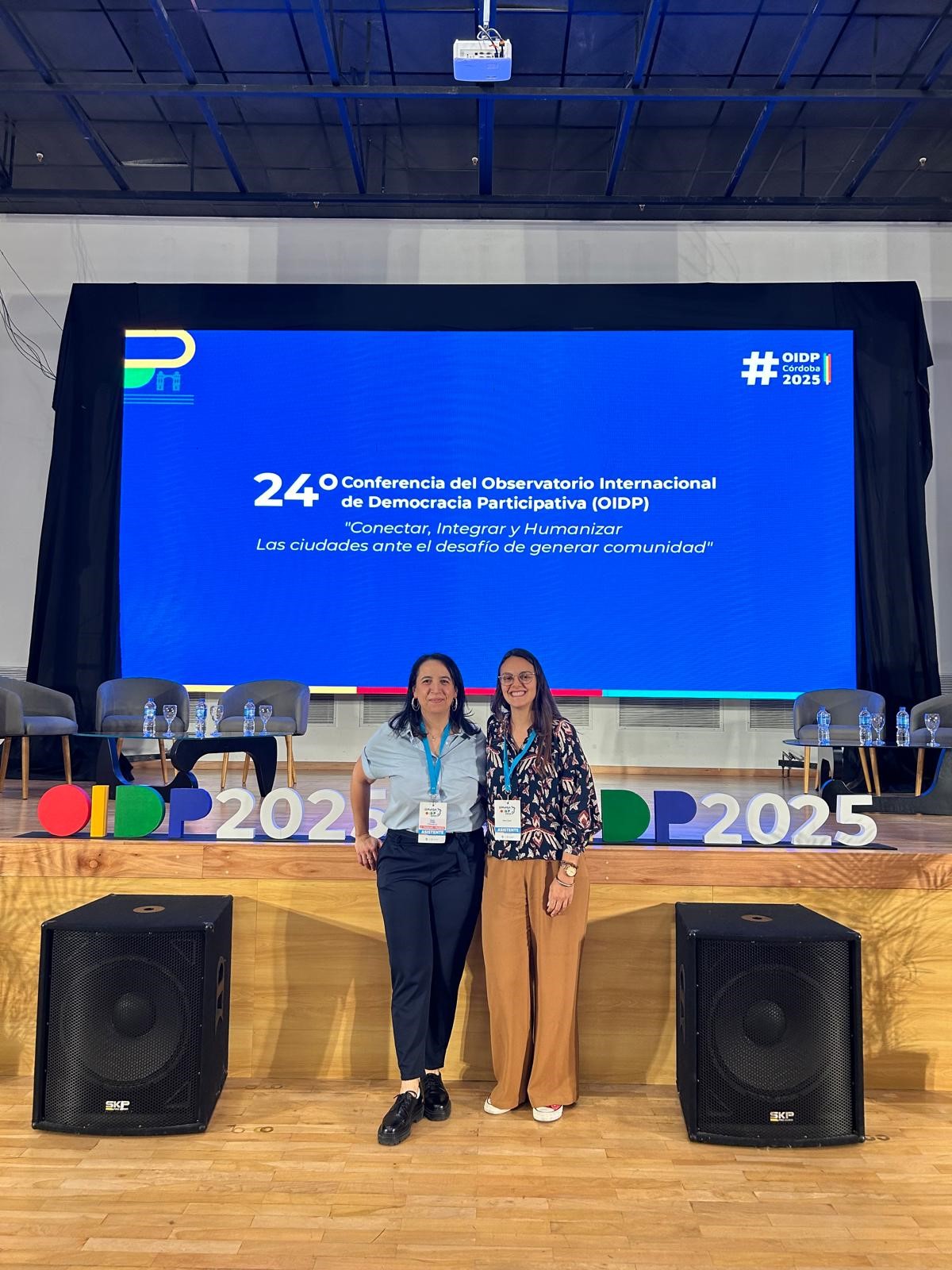

A delegation from Seine-Saint-Denis attended the 24th Conference of the OIDP held in Córdoba in May.
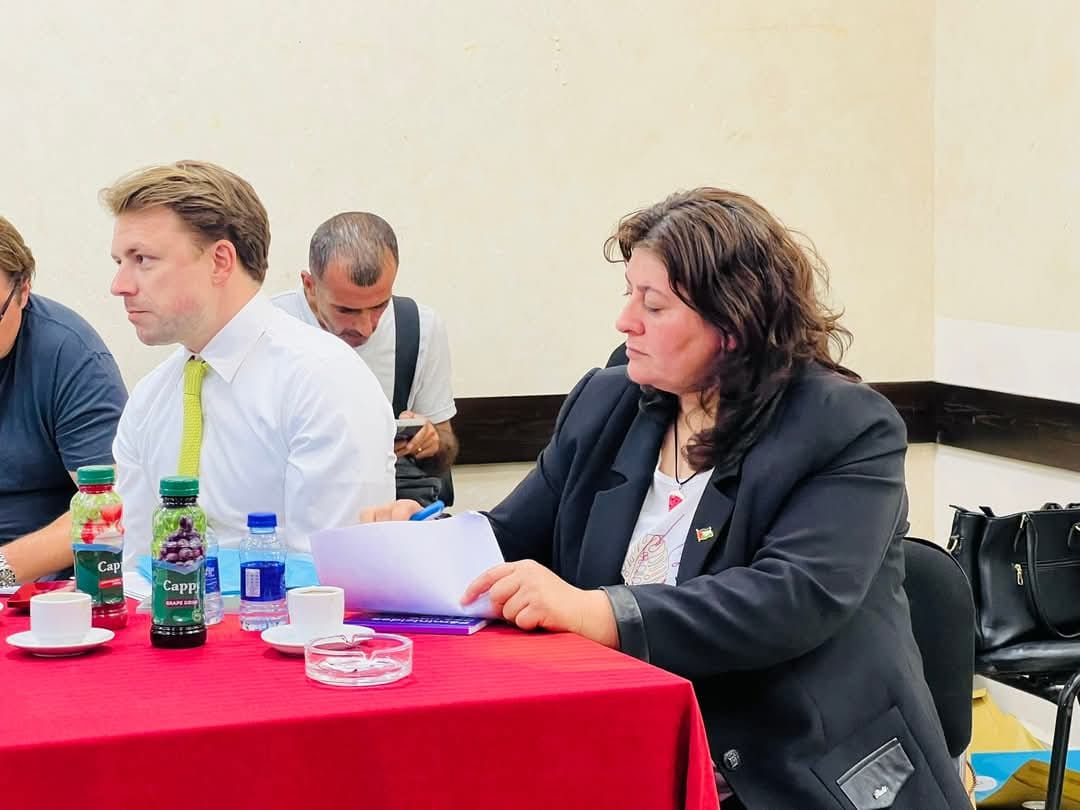

During our meeting on June 11, 2025, Mayssoun Dawoud, head of the Observatory on Violence Against Women in Jenin, shared the...
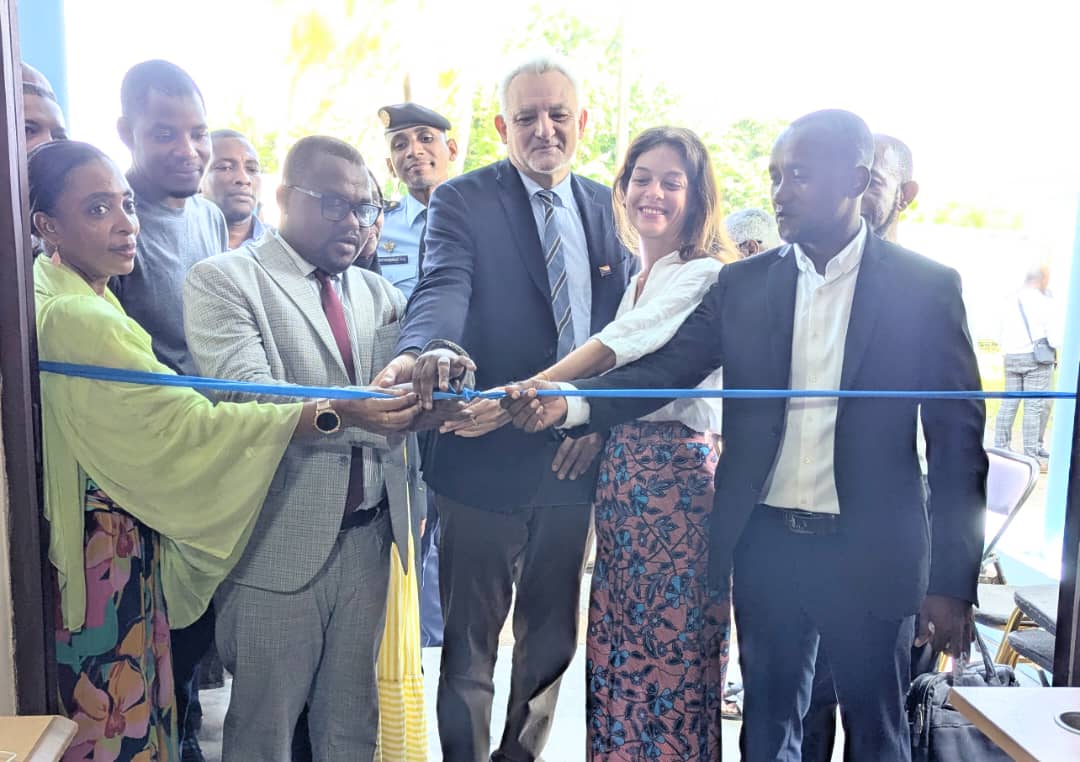

After a challenging year in 2024—marked by the election of a new governor for the Autonomous Island of Ngazidja and a cholera...
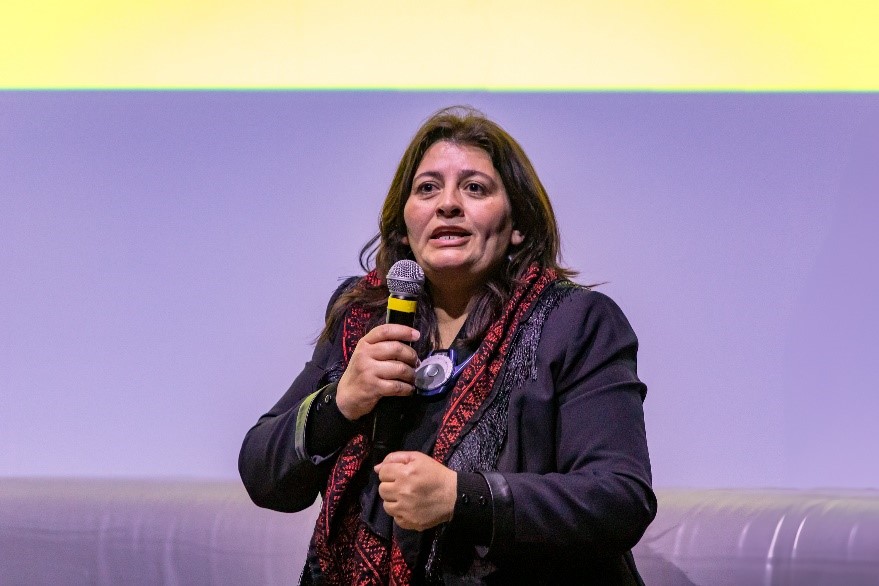

For over a month, the refugee camp of Jenin in the West Bank has been under Israeli siege. The humanitarian situation is...











On the occasion of the International Day of Zero Tolerance for Female Genital Mutilation (FGM), it is crucial to highlight that...
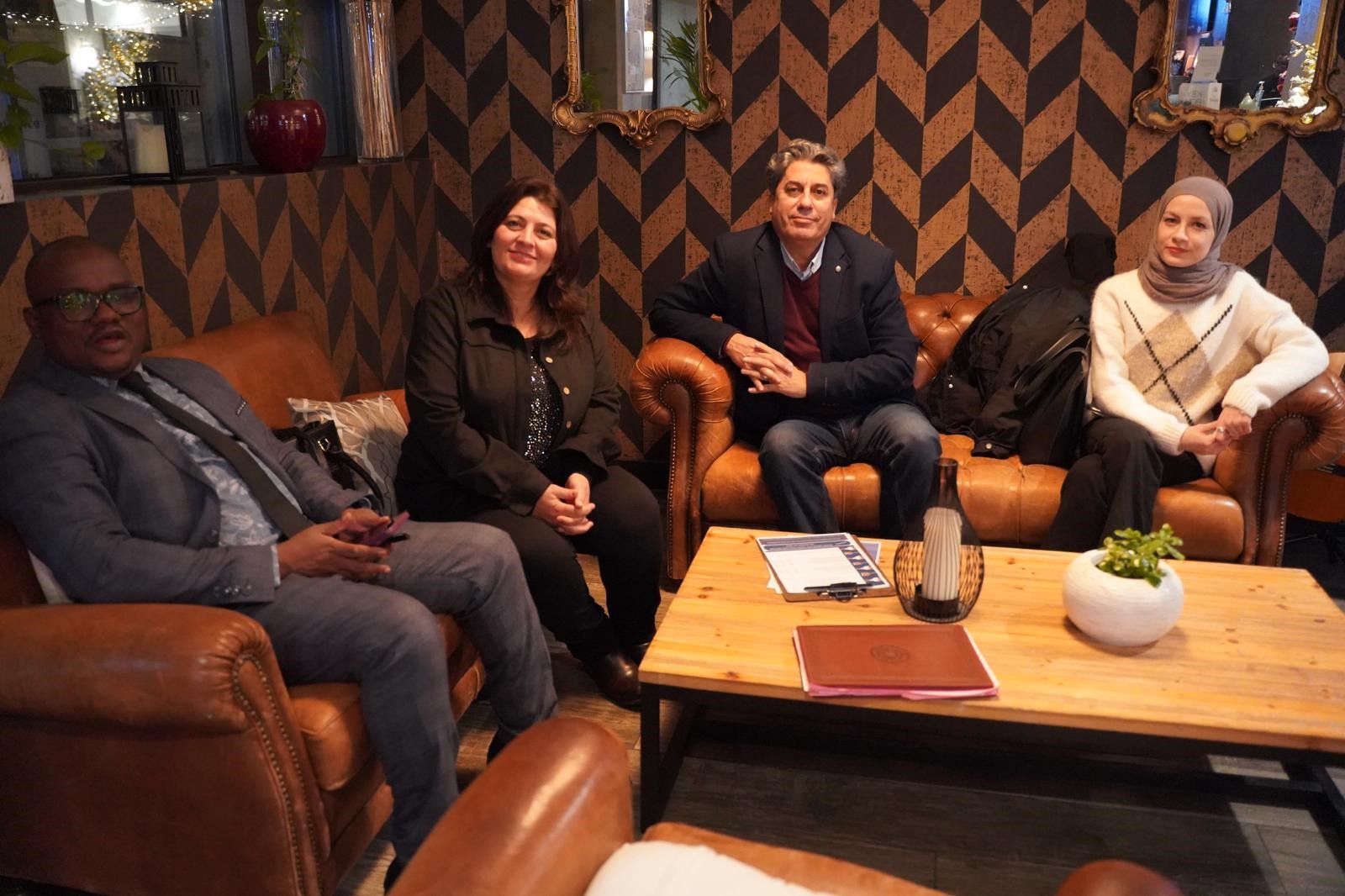

While Israel and Hamas announced on Wednesday, January 15, 2025, an agreement for a ceasefire in Gaza, accompanied by the release...
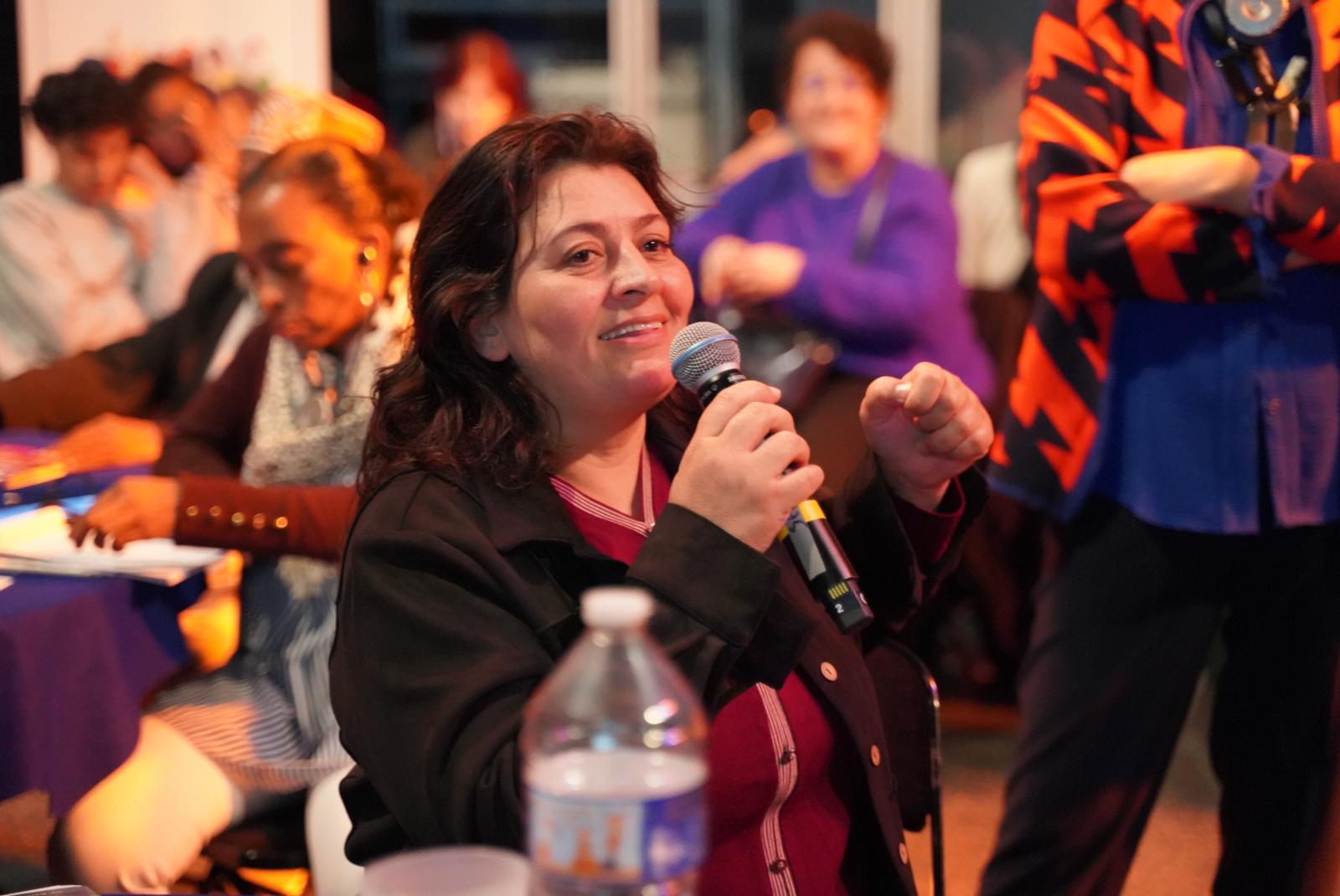

During our exchange on December 17, 2024, Mayssoun Dawoud, head of Jenin's Observatory of Violence against Women, testified
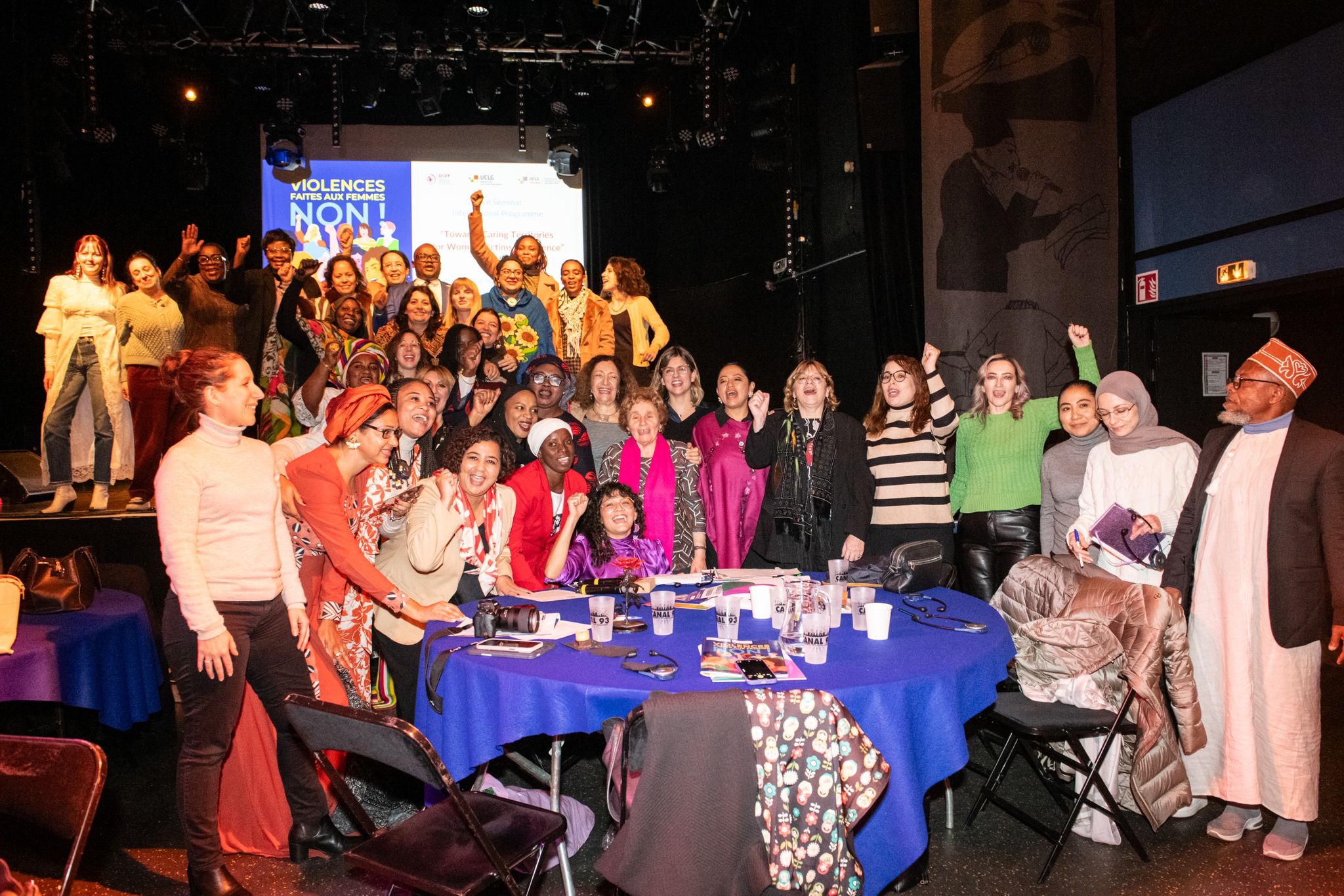

Over 50 Local Leaders and Experts Gather in Seine-Saint-Denis to Highlight the Role of Local and Regional Governments to #EndVAW
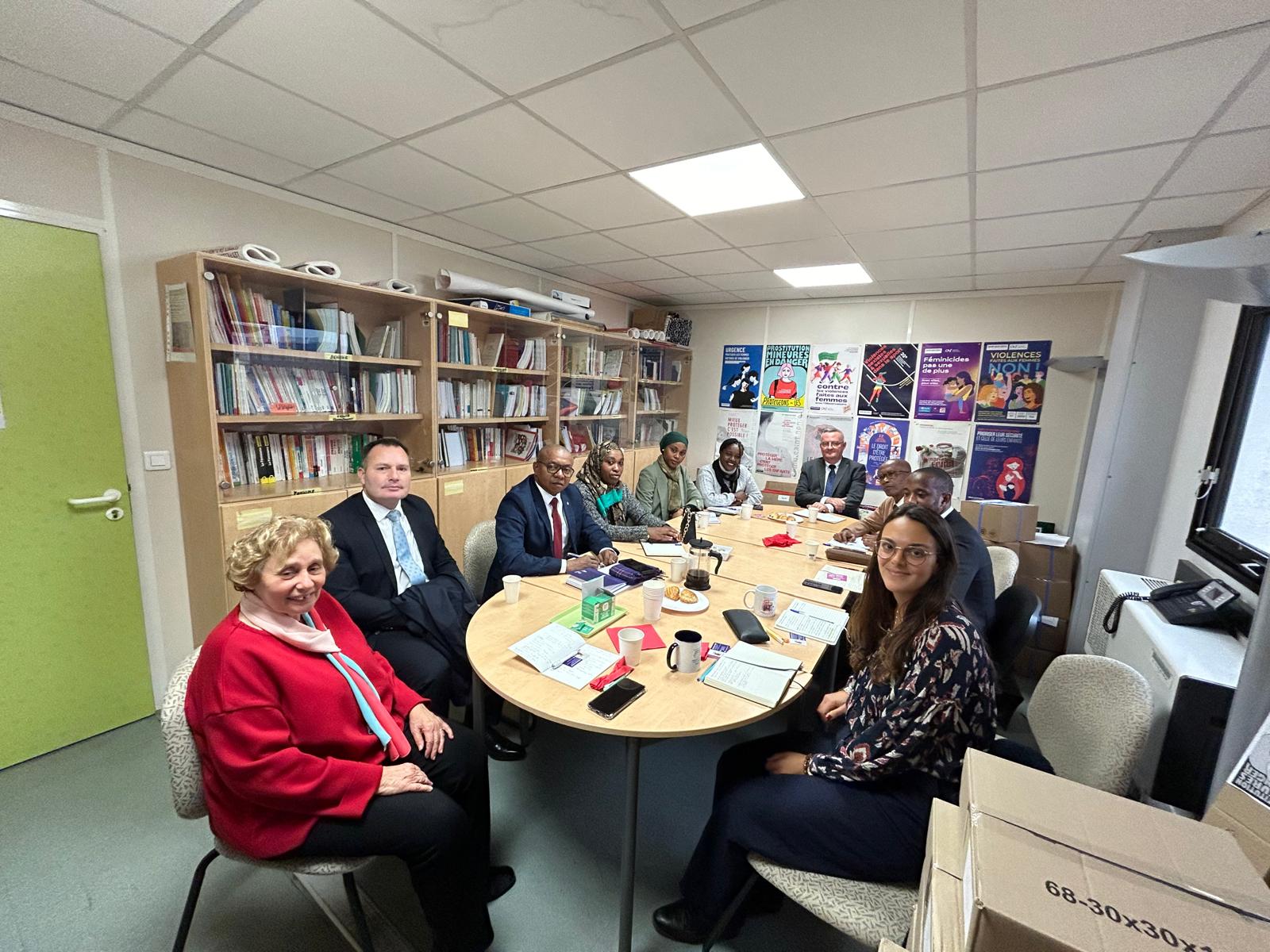

On November 15, 2024, the Observatory on violence against women welcomed a Comorian delegation composed of actors committed to...
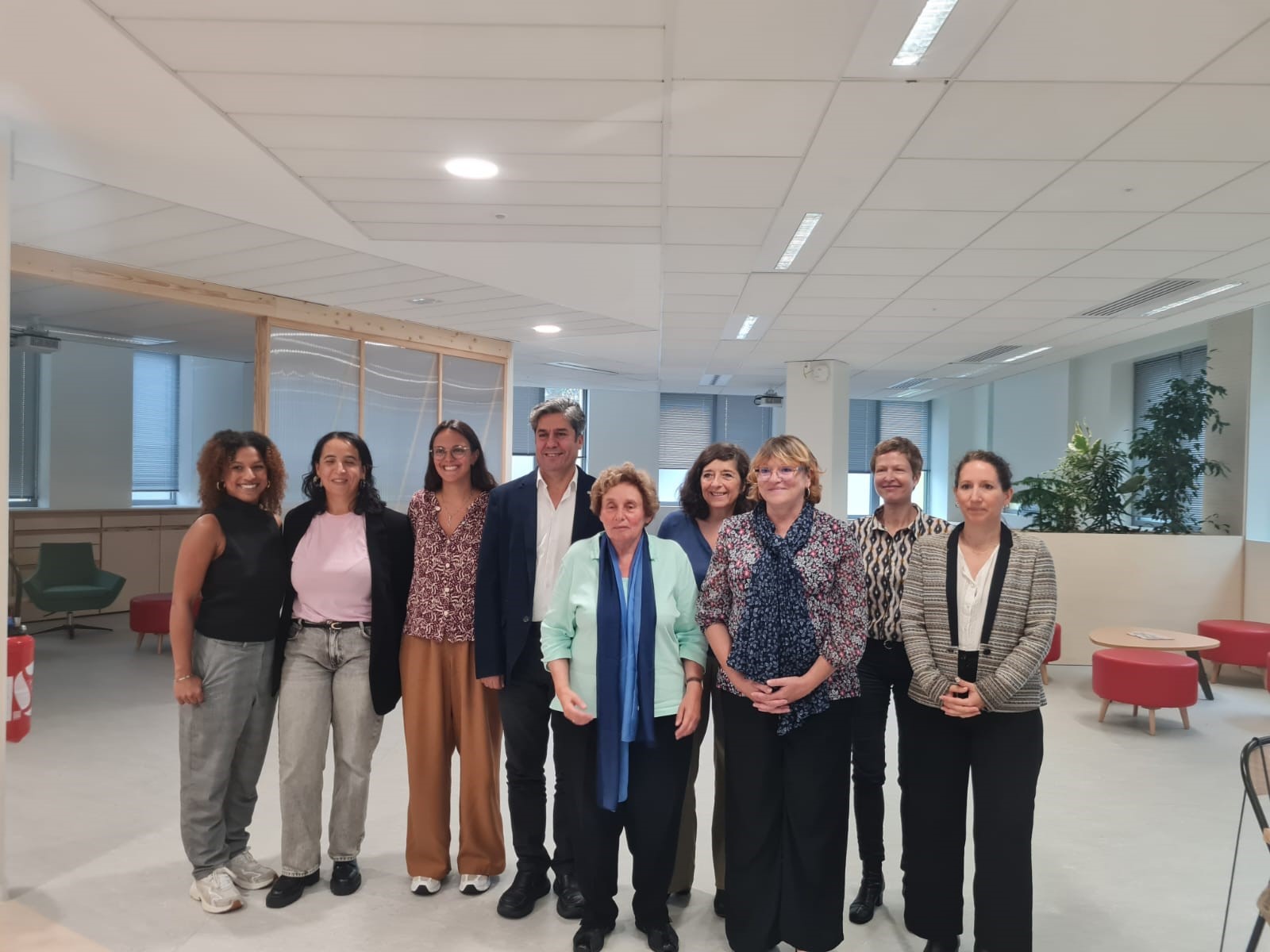

On September 5th, in the absence of the mayor of Jenin, who was held back by the Israeli offensive in his town, the mayors of...











On the occasion of the International Day of the Girl Child, celebrated on October 11, the International Observatory on Violence...


During our weekly meeting on August 8, 2024, Maysoun Dawoud, Head of the Observatory of Violence Against Women in Jenin, shared...




As part of its program "Territories that protect women victims of violence" the International Observatory of Violence Against...


As part of the project "Territories that Protect Women Victims of Violence," the International Observatory on Violence Against...
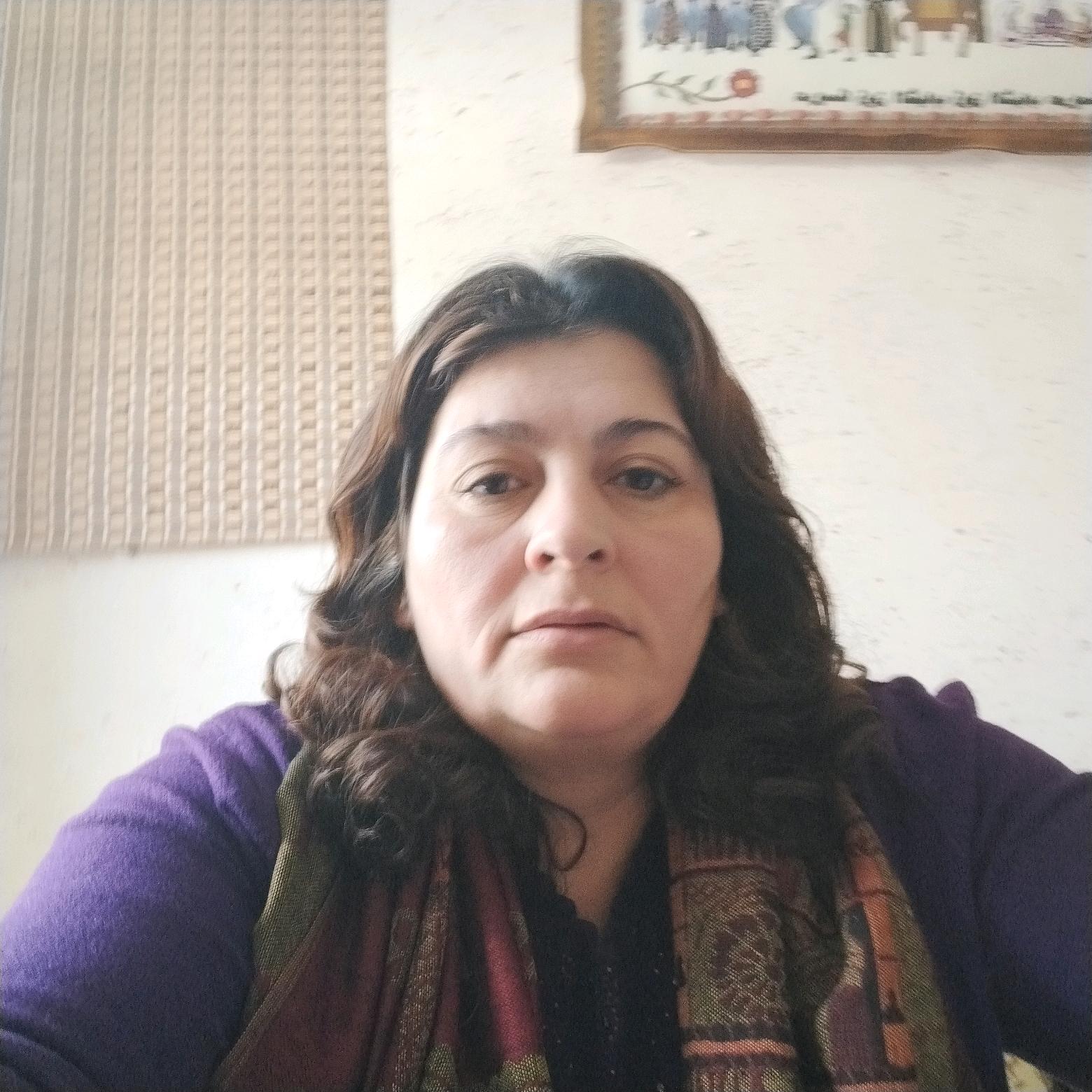


During our weekly meeting on July 9, 2024, Mayssoun Dawoud, Head of the Observatory of Violence Against Women in Jenine, shared...
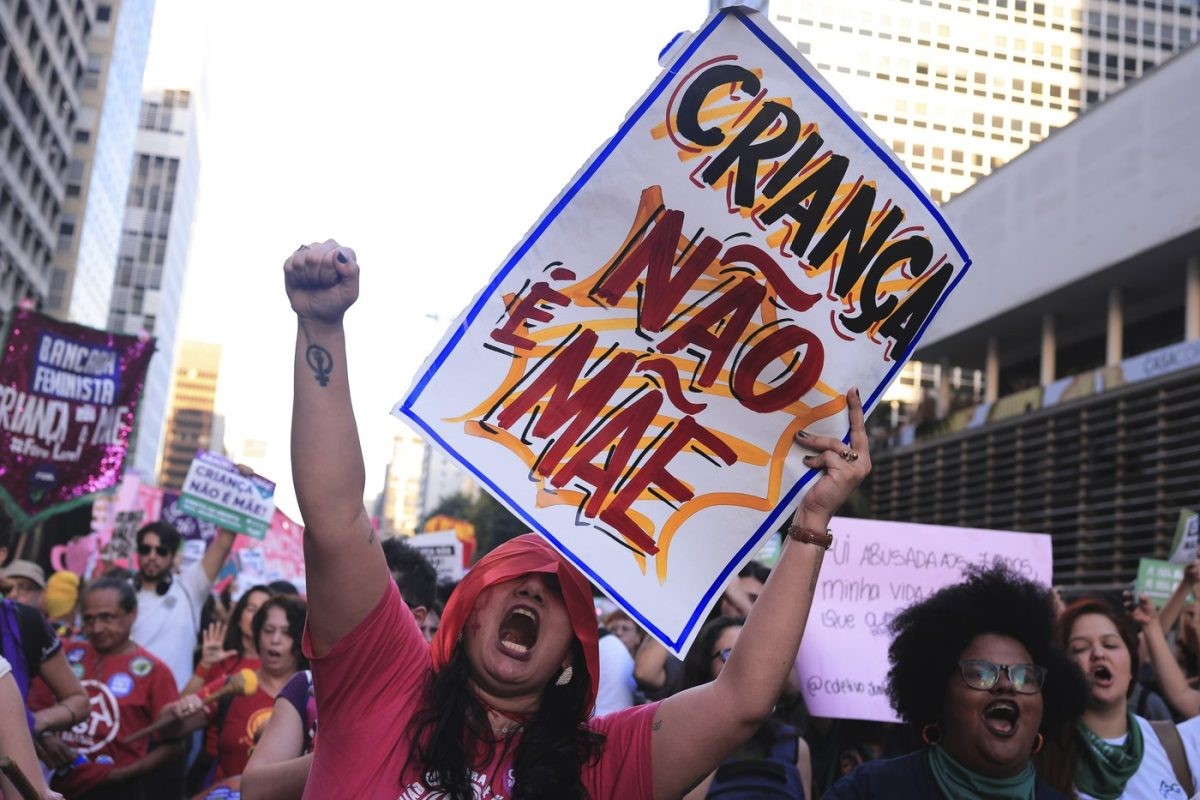

Thousands of people protested on Thursday, June 13, in several cities across Brazil against a bill being examined by Congress...
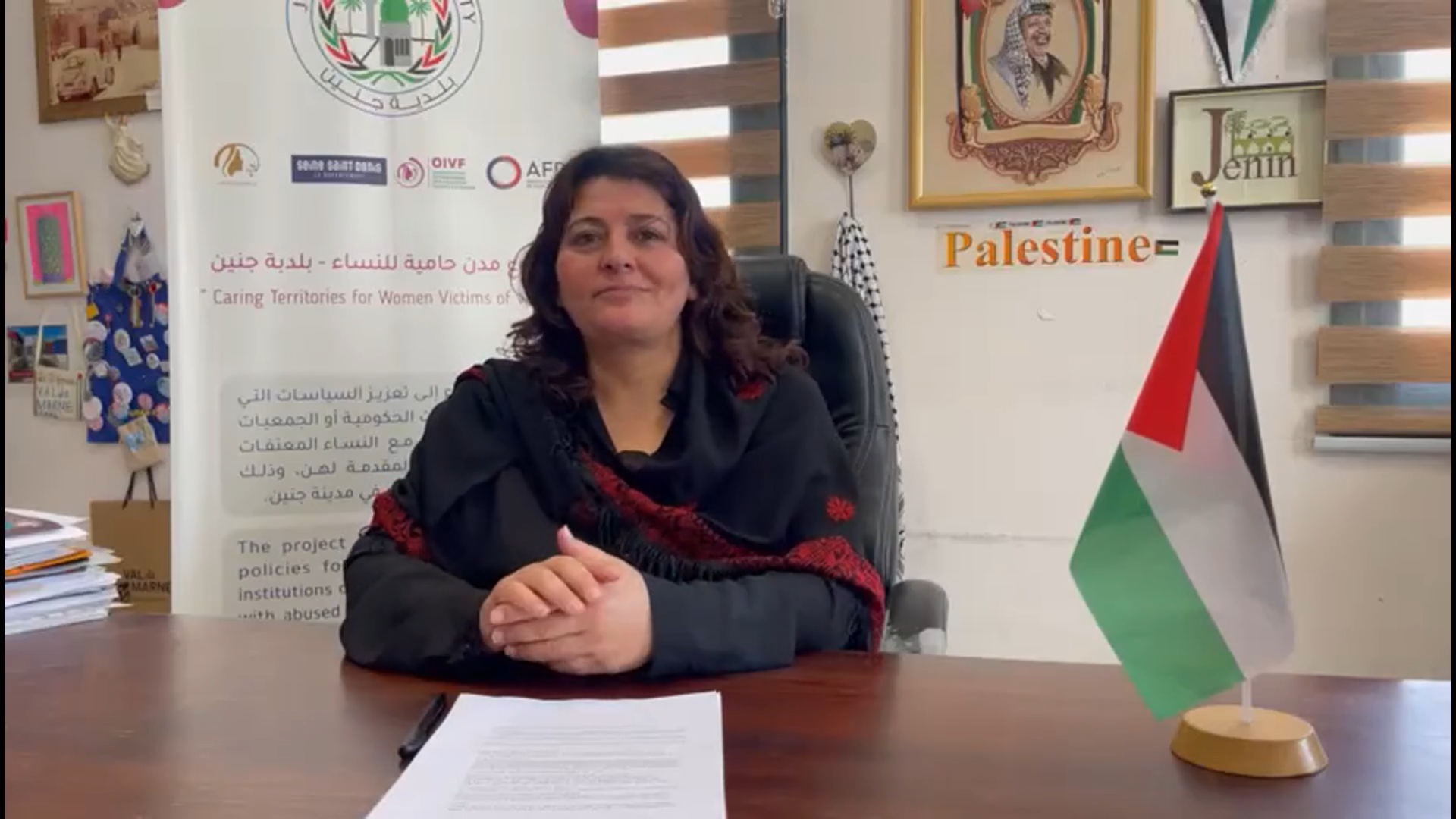


During our weekly meeting on May 30, 2024, Mayssoun Dawoud, Head of the Observatory of Violence Against Women in Jenin, shared...
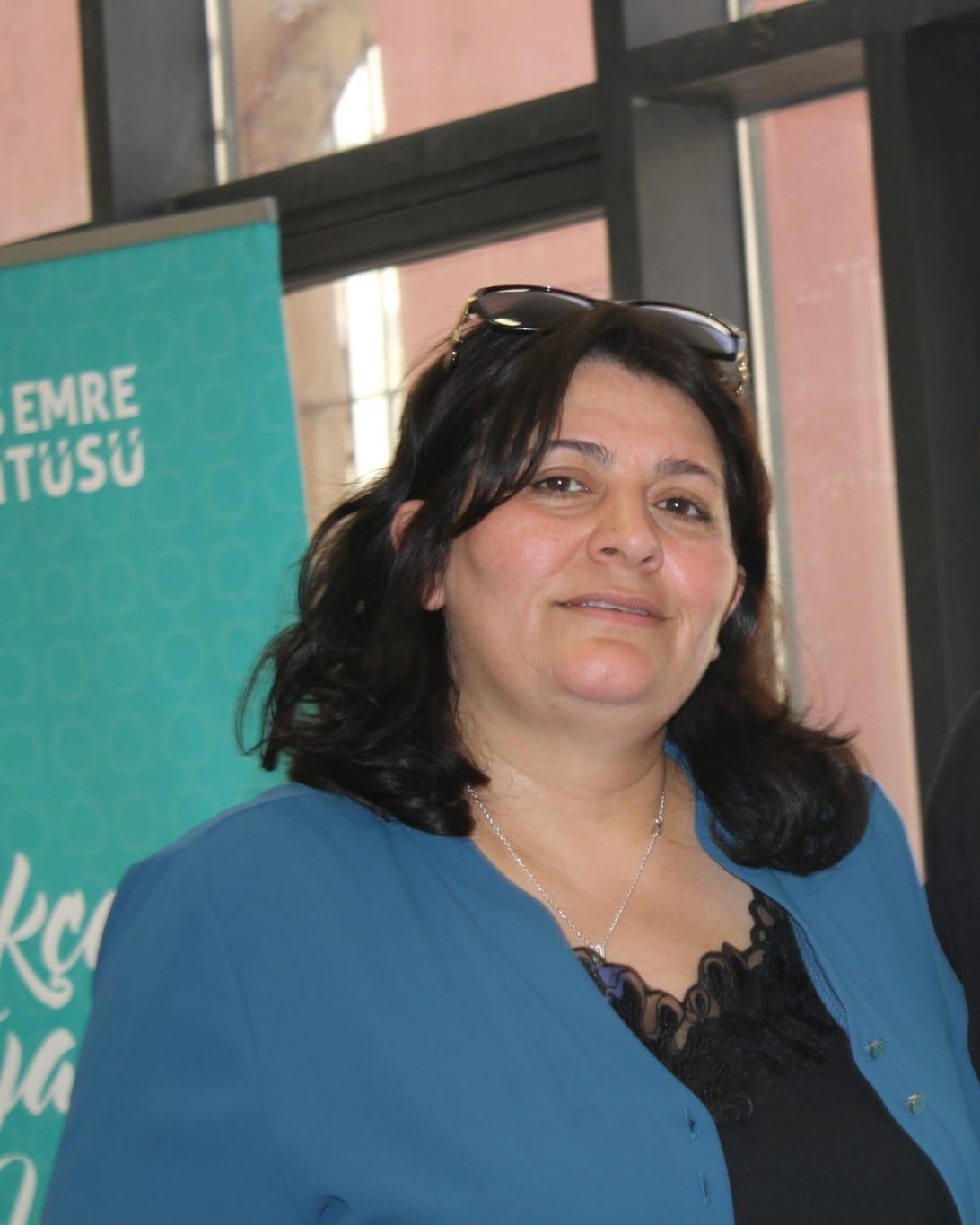



During our weekly meeting on May 16, Mayssoun Dawoud, Head of the Observatory for Violence Against Women in Jenin, shared...
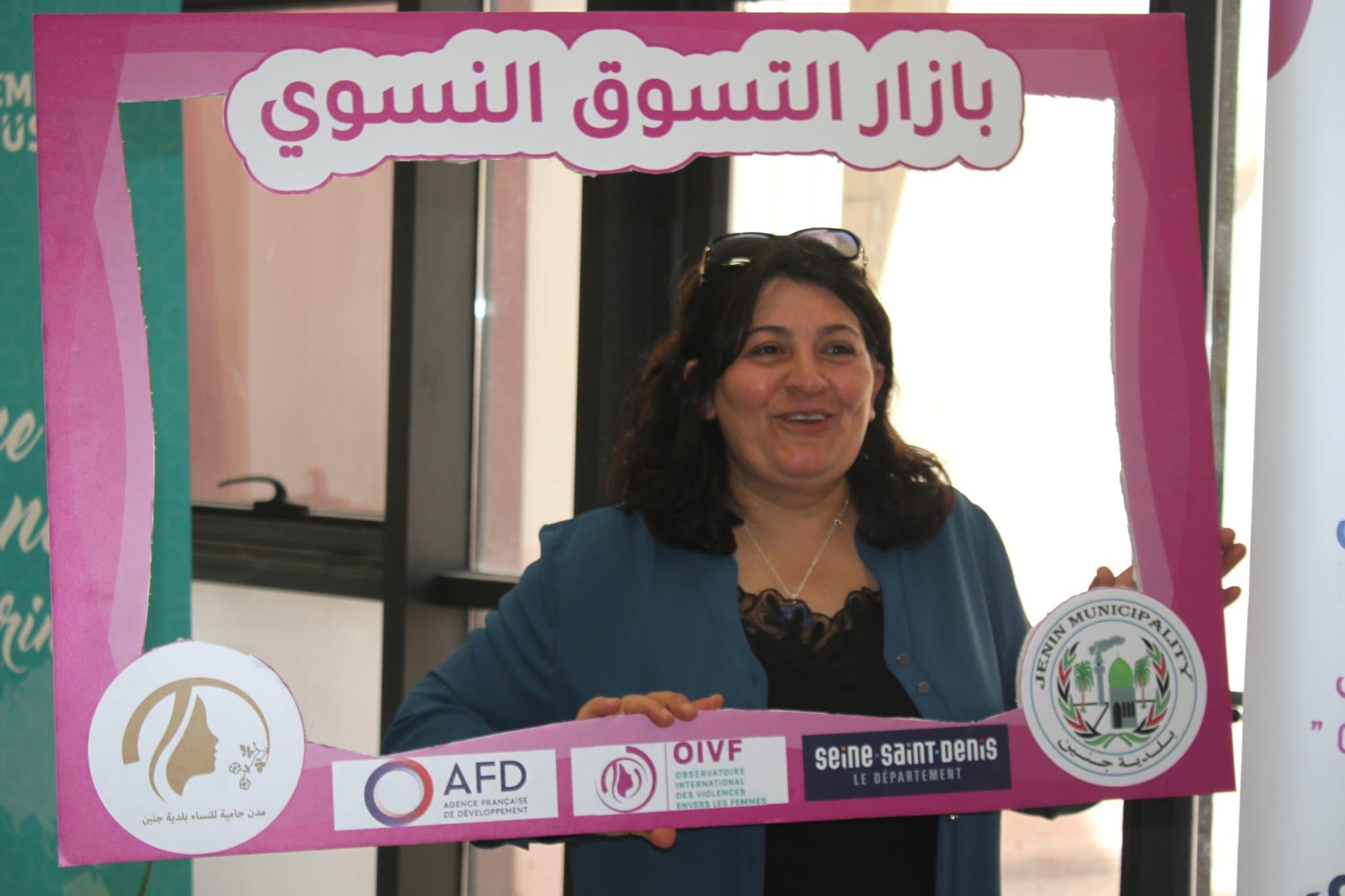


During our last two weekly meetings, Mayssoun Dawoud, Head of the Women's Violence Observatory in Jenin, shared information about...


On the occasion of International Labour Day, it is important to highlight initiatives aimed at promoting the economic empowerment...



During our weekly video conference on 4 April, we shared information on the situation in Jenin. Maysoun Dawoud, Head of the Jenin...
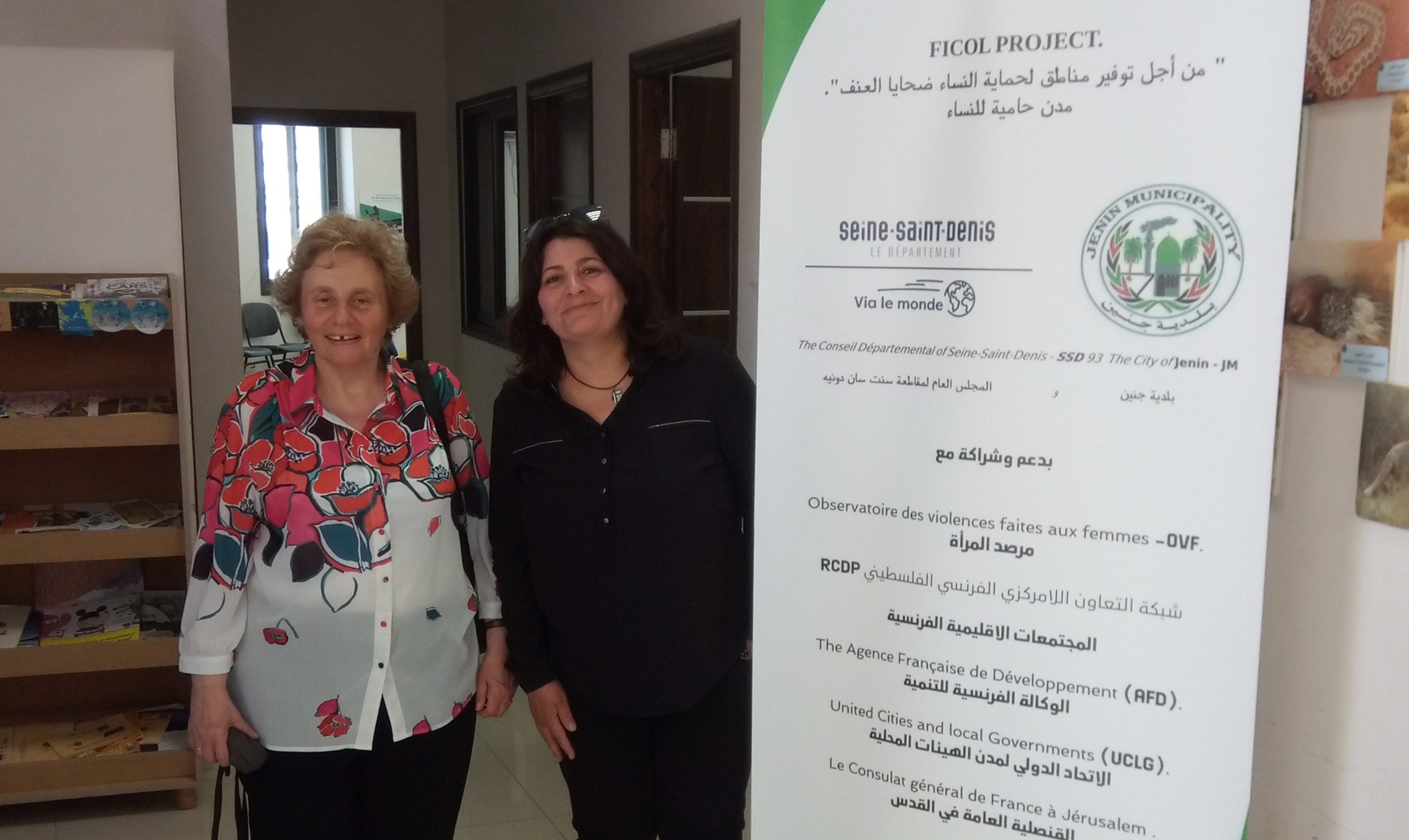

As part of the project “Territories protecting women victims of violence”, the International Observatory on Violence against...
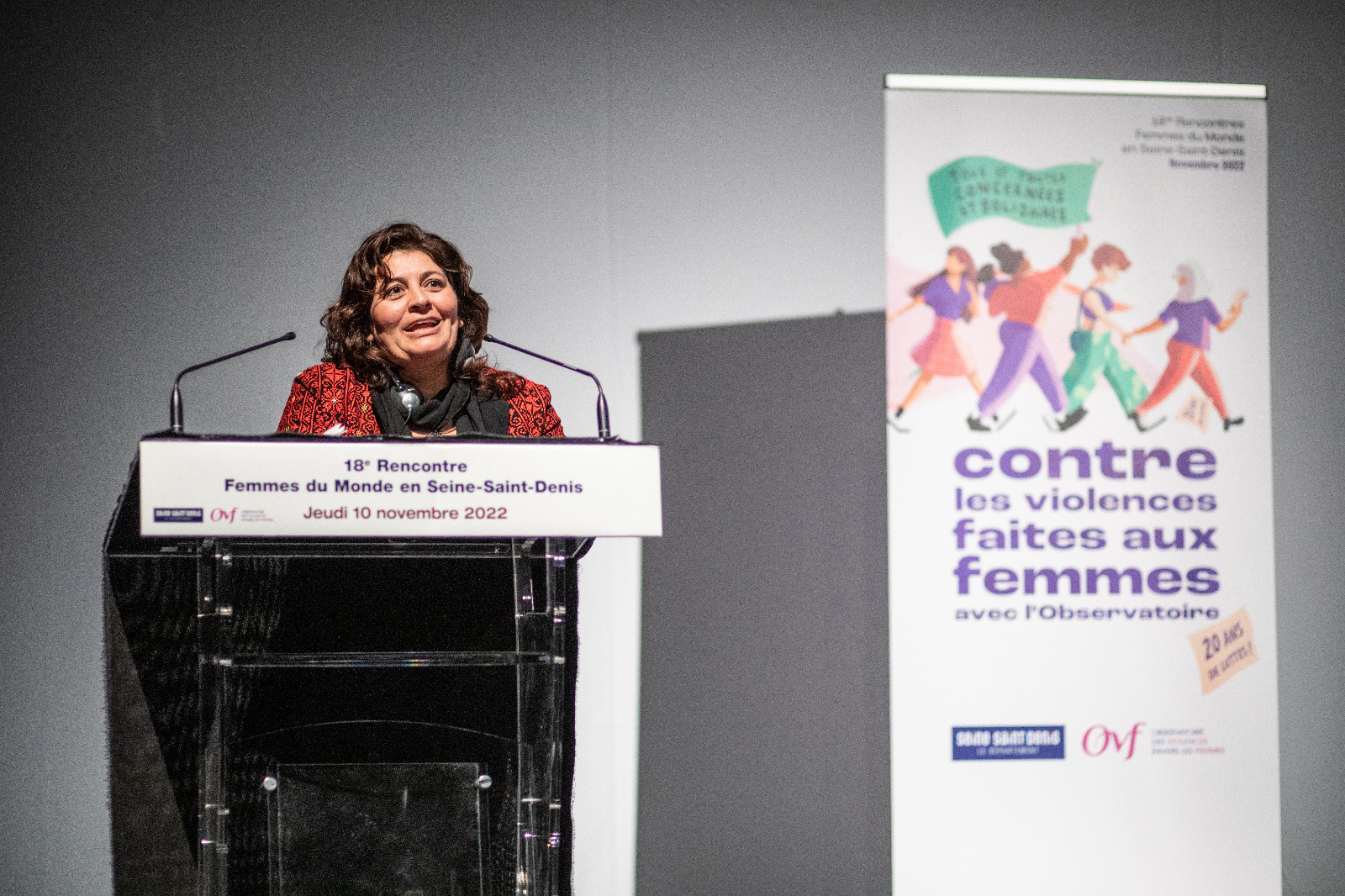

During our weekly video call on March 21st, Mayssoun Dawoud, Head of the Observatory for Violence Against Women in Djenin, shared...




During a telephone conversation on March 13, we received alarming information about the situation in Djénine. Mayssoun Dawoud,...


On this March 8, 2024, we would like to express our solidarity with all women and girls who are victims of violence in times of...
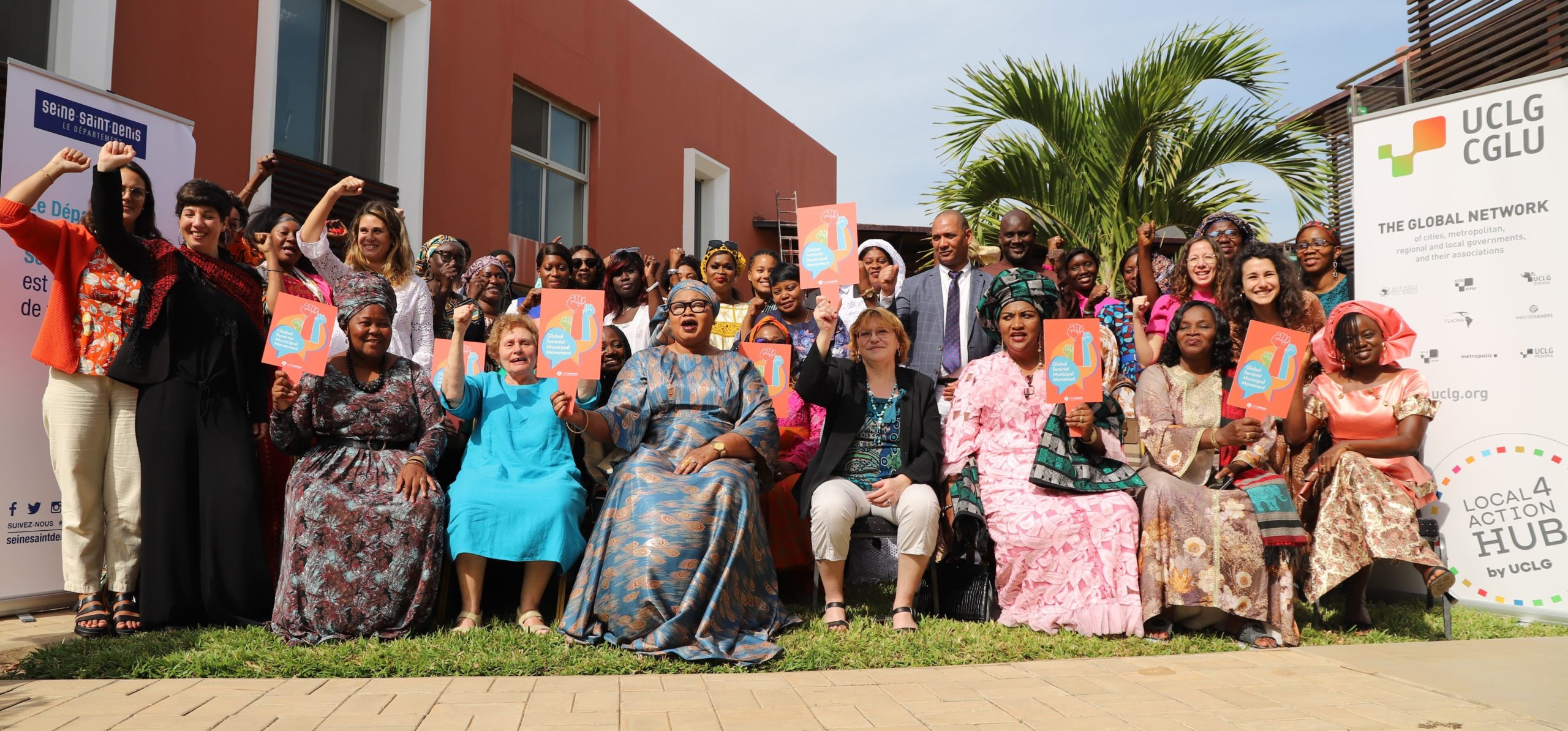

A look back at the seminar entitled "Territories protecting women victims of violence", organised by the International...




During our weekly video conference meeting with Palestine on February 8th, Mayssoun Dawoud, Head of the Observatory for Violence...











The International Observatory on Violence against Women is committed to combating female genital mutilation.
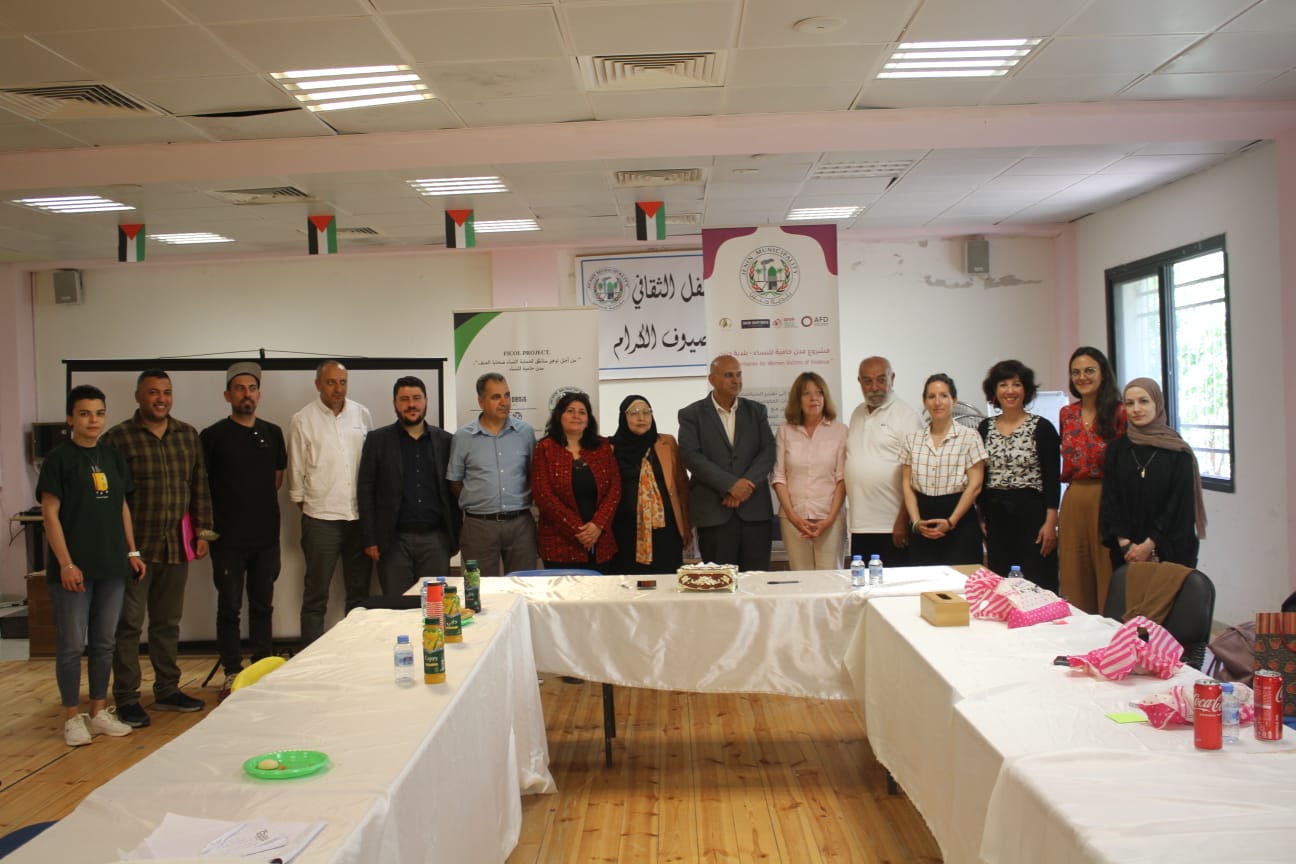

As part of the project "Territories protecting women victims of violence," the team from the Observatory of Violence against...



Within the framework of the project "Territories protecting women victims of violence", the city of Jenin, is the target of...
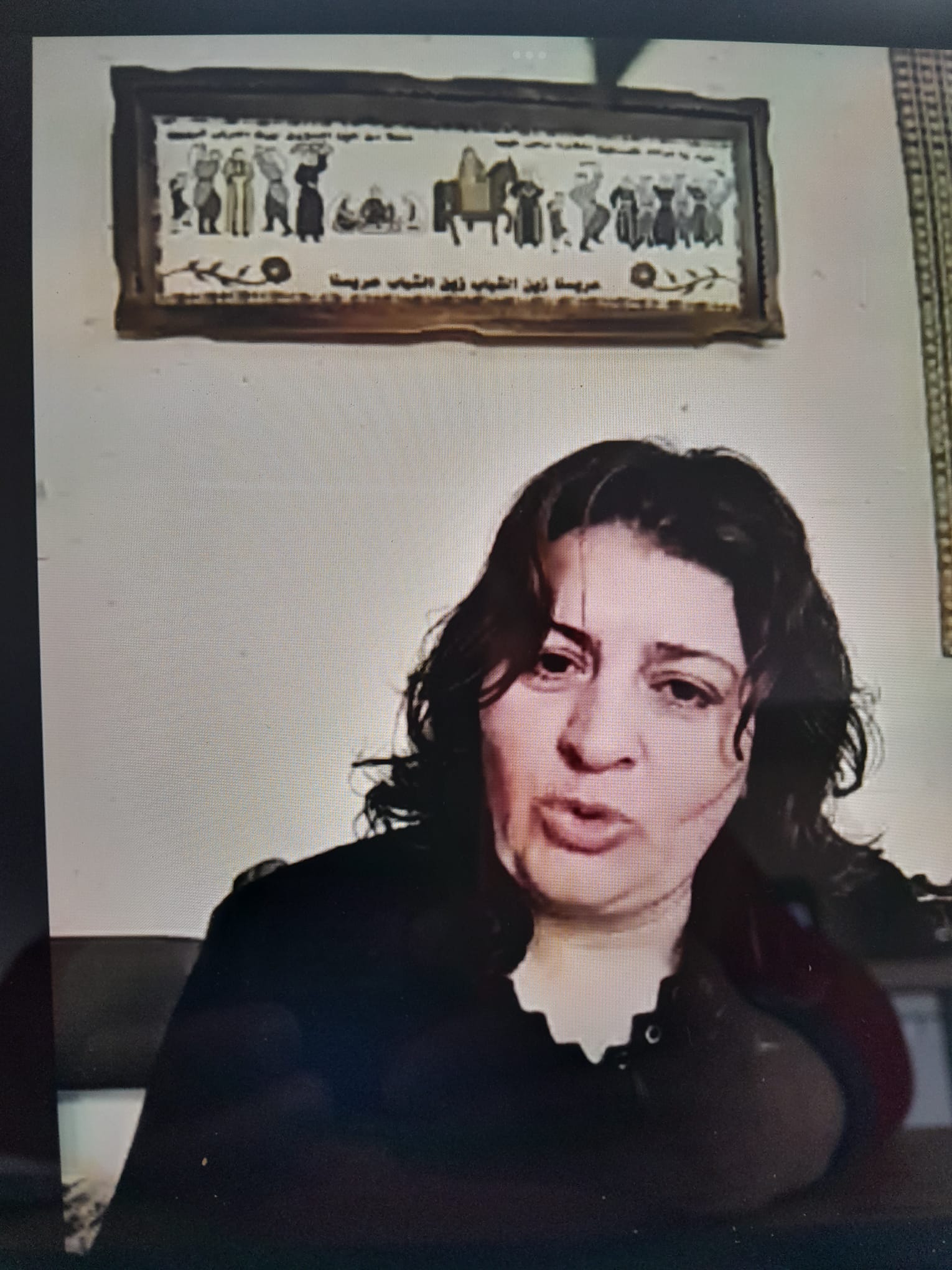

As part of the project "Territories protecting women victims of violence", the team of the International Observatory on violence...











As part of the project "Territories protecting women victims of violence", the International Observatory on violence against...



As part of the project "Territories protecting women victims of violence", the International Observatory on Violence against...


From November 8 to 17, the Observatory of Violence against Women hosted the 19th edition of Femmes du Monde in Seine-Saint-Denis....


In November 2023, Yadira Cortés Castillo, a Mexican activist and guest speaker at the 19th ”Femmes du Monde” in...
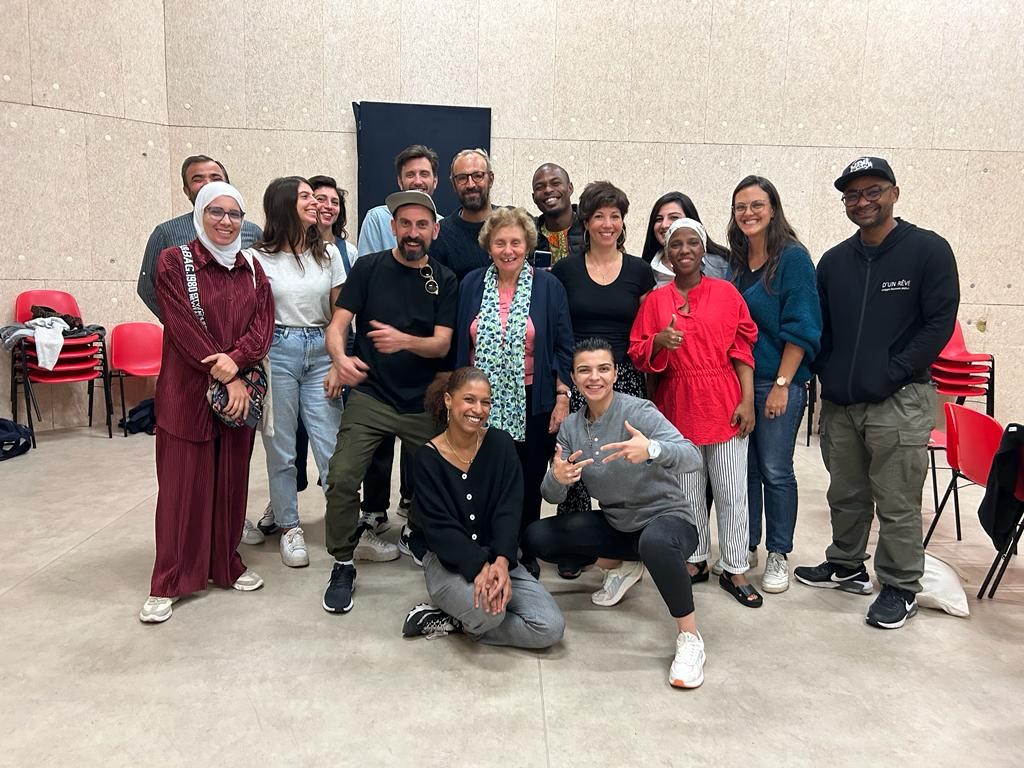

In September 2023, a delegation of facilitators from Djénine and Ngazidja came to Seine-Saint-Denis to participate in training...
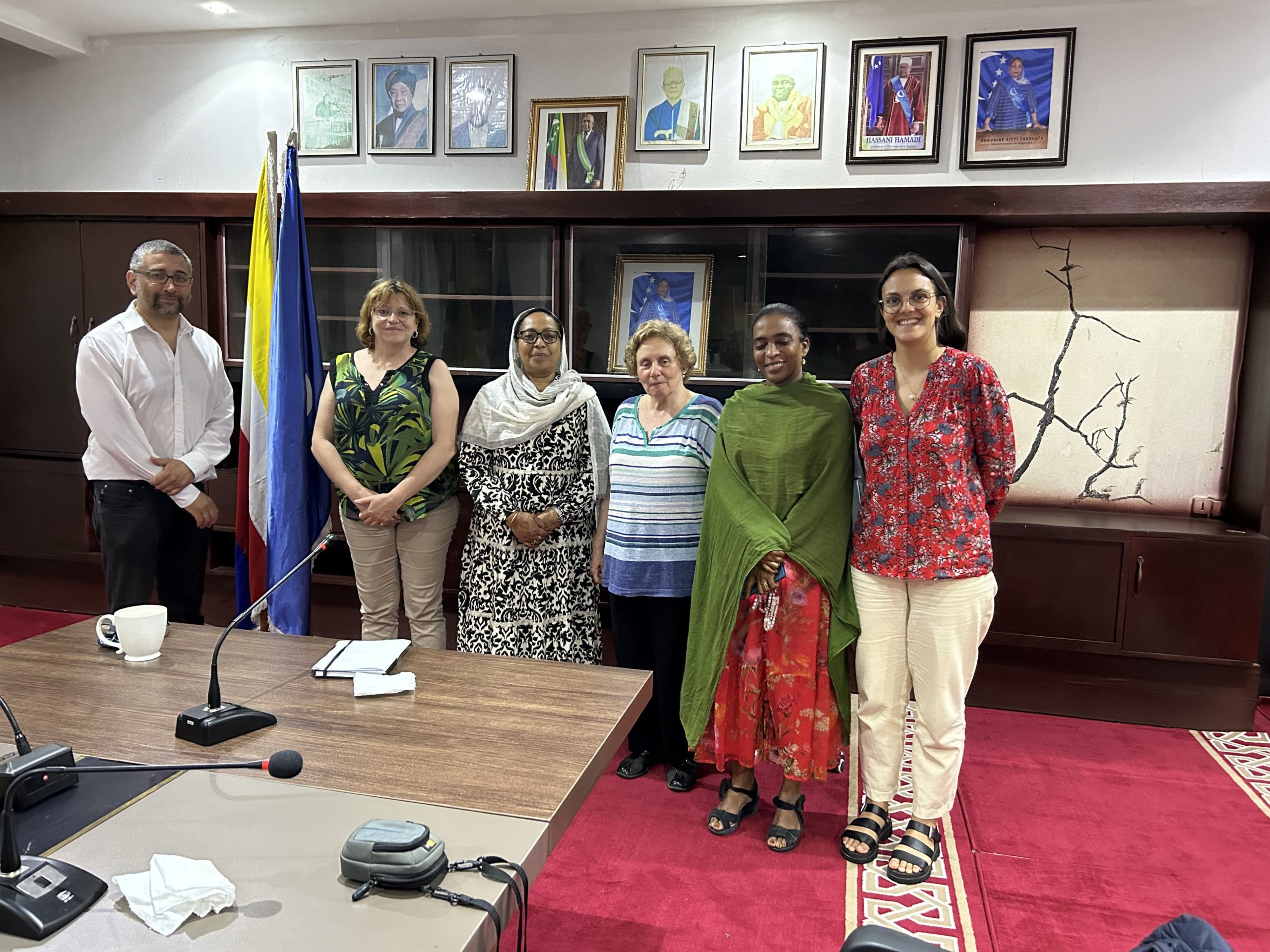

In June 2023, a delegation from Seine-Saint-Denis travelled for the second time to Ngazidja (Comoros), as part of the "...


In May 2023, a delegation from Seine-Saint-Denis visited the Palestinian Territories as part of the international programme...
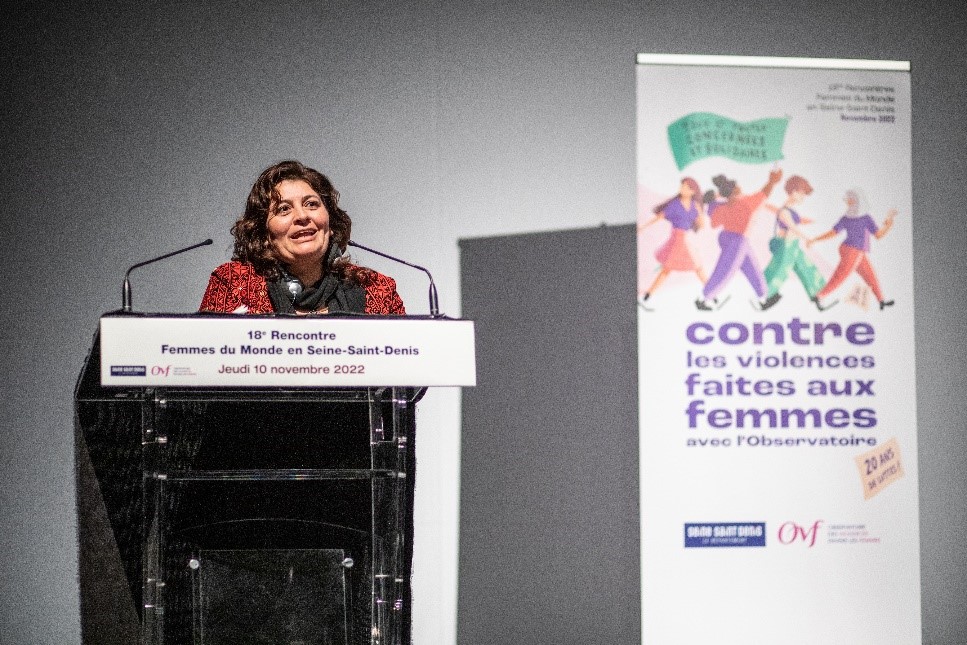

In the framework of the project “Territories protecting women victims of violence”, the International Observatory on Violence...
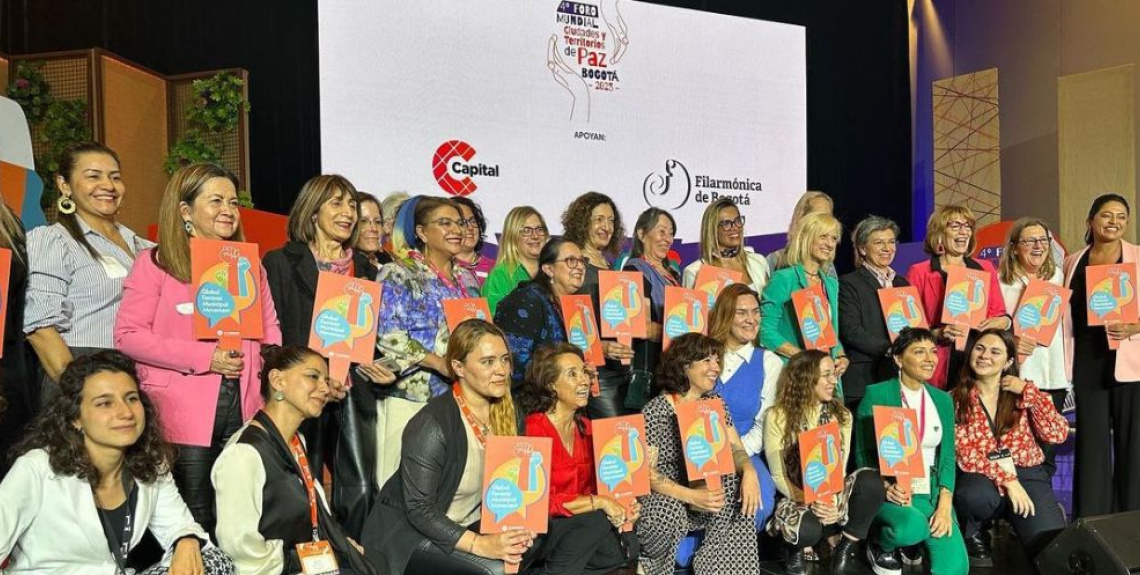

The coordinator of the International Observatory on Violence Against Women attended the 4th Forum of Cities and Territories for...




This is the fifth edition of the call for projects Agir IN Seine-Saint-Denis. This year, a new category of actions dedicated to...











To mark the 75th anniversary of the Universal Declaration of Human Rights, we are proud to join the Social Inclusion, Human...
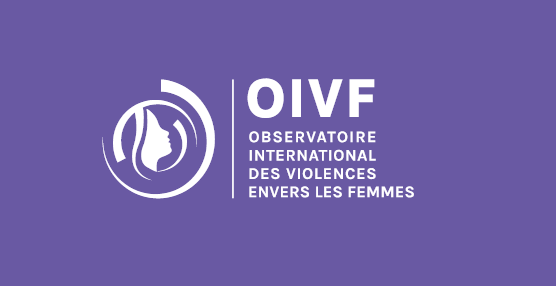

This day of mobilisation throughout the world is an opportunity to reflect on the situation of women, the progress made but also...
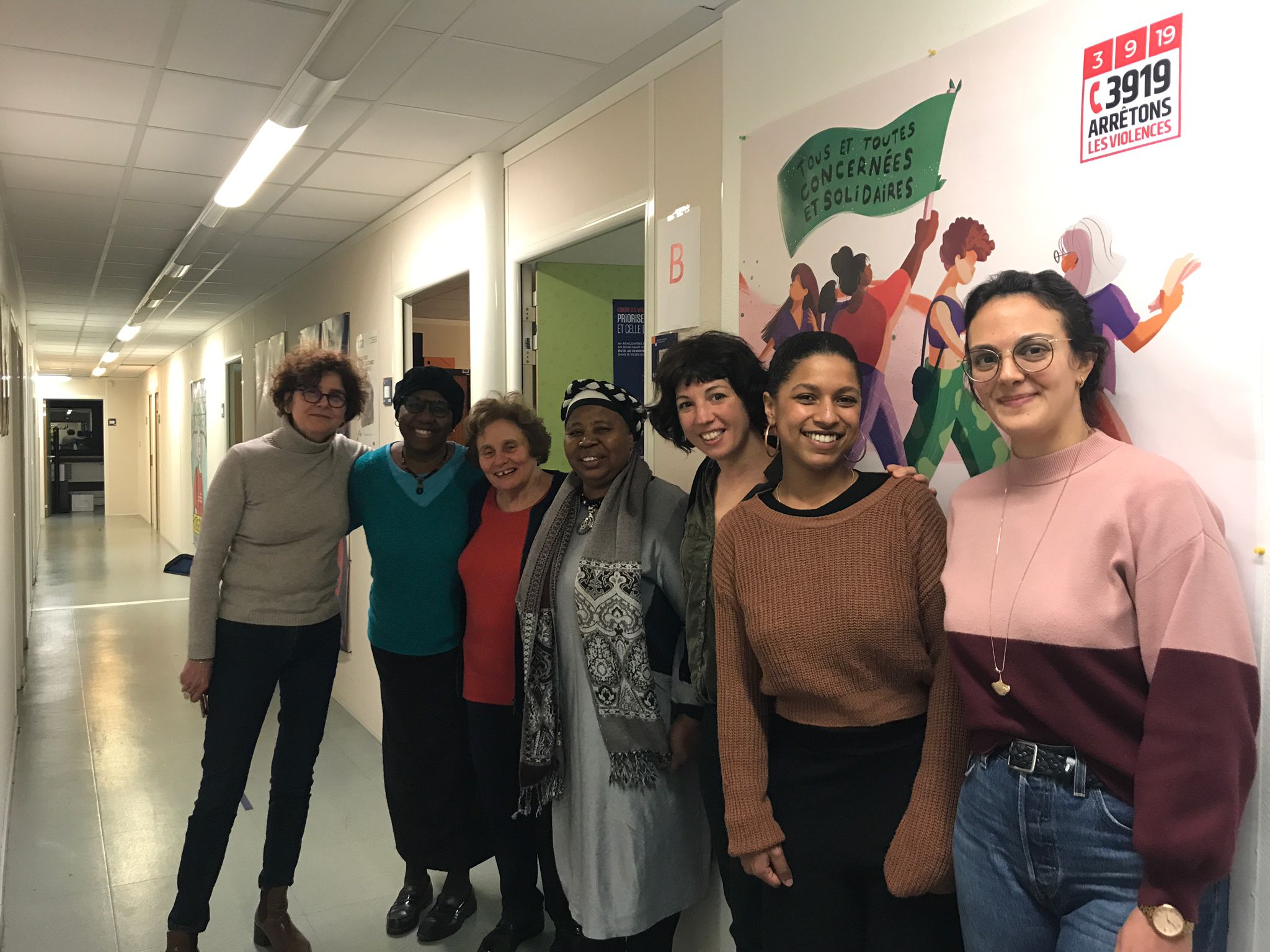

A look back at the meeting between the International Observatory on Violence against Women and Mrs. Bintou Founé Samaké...
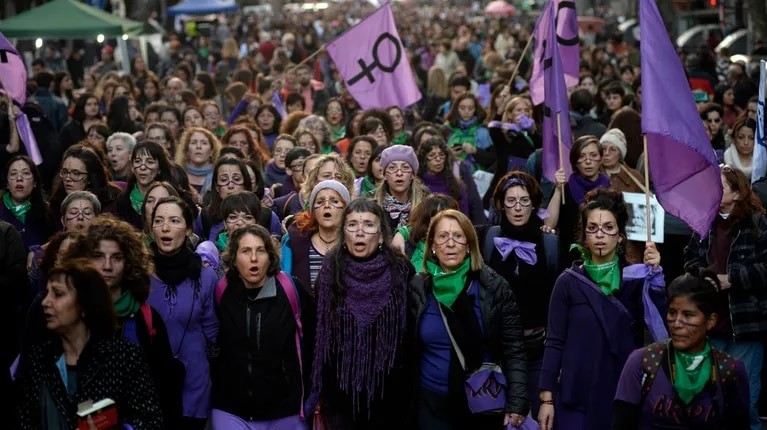

On the occasion of 8 March, it is essential to highlight the mobilisation of women in social movements, who are fighting to put...



Return on the seminar "Fighting violence against women in public and private spaces" organised by the International Observatory...











February 6 marks the International Day of Zero Tolerance to Female Genital Mutilation.


From November 7 to 12, the Observatory of Violence against Women hosted the 18th edition of Femmes du Monde in Seine Saint Denis,...
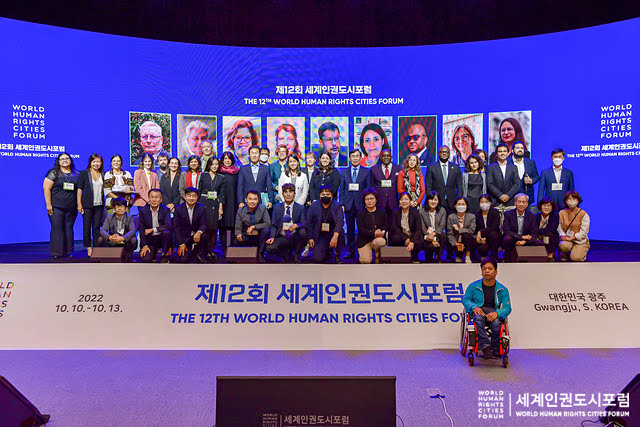

From 9 to 14 October 2022, the International Observatory on Violence against Women was in South Korea to participate in the World...











In the pursuit of the International Observatory program "Caring territories for women victims of violence", our delegation went...











On June 22, 2022, the Department of Seine-Saint-Denis and UGCL co-hosted a webinar on "Local and Regional Governments against...











Following the development of the international program "Territories caring for women victims of violence", a delegation composed...
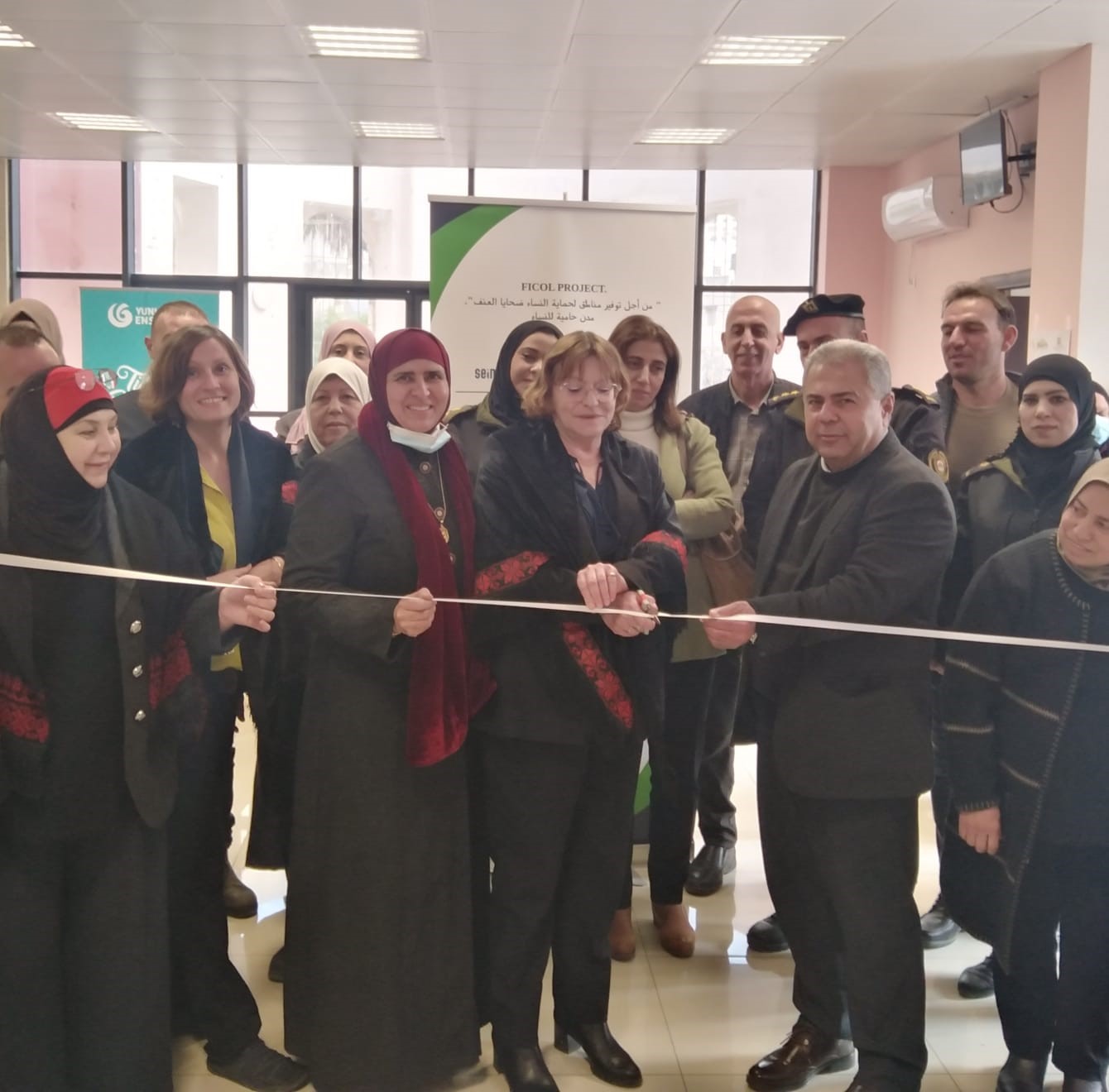

In February 2022, the city of Jenin (Palestine) inaugurate the office of the Observatory of Violence against Women.
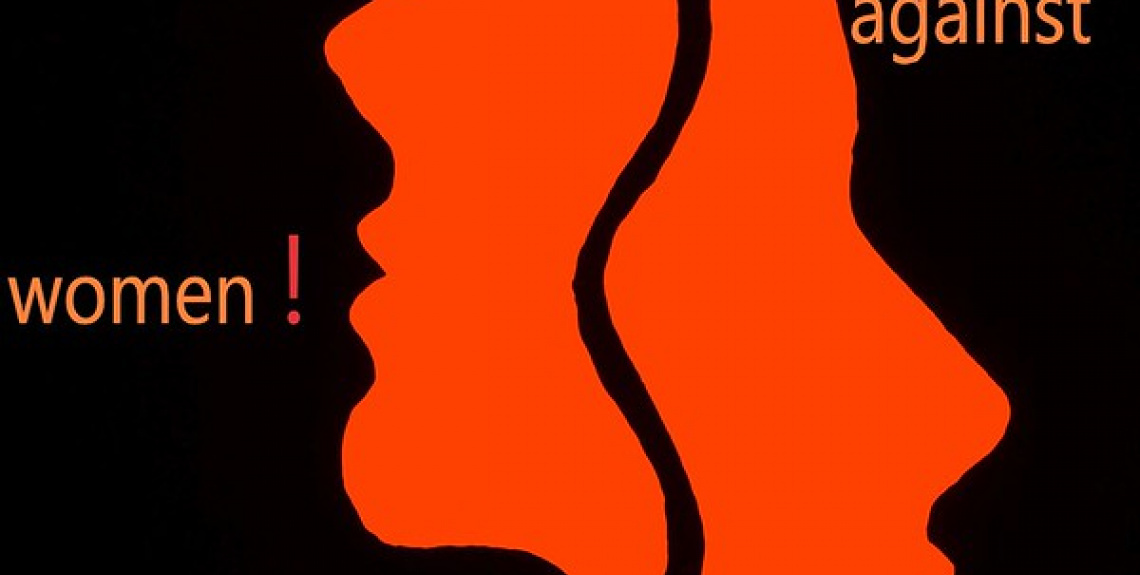

On this International Women’s Day, we would like to express our solidarity with all these women and their children.
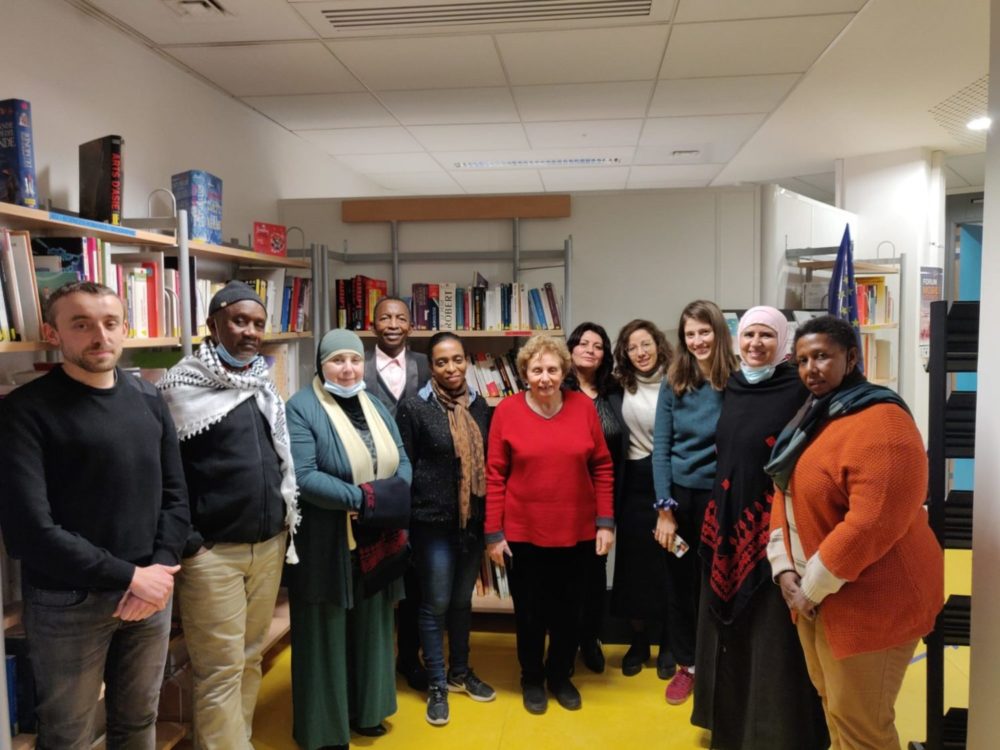

Meeting between the Observatory of violence against women of Seine Saint Denis, the island of Ngazidja (Comoros) and the...
No results were found for your search
Join the network
Elected officials, professionals and associations, international networks and organizations, researchers: we need you.






